Past Mellon Mays Fellows
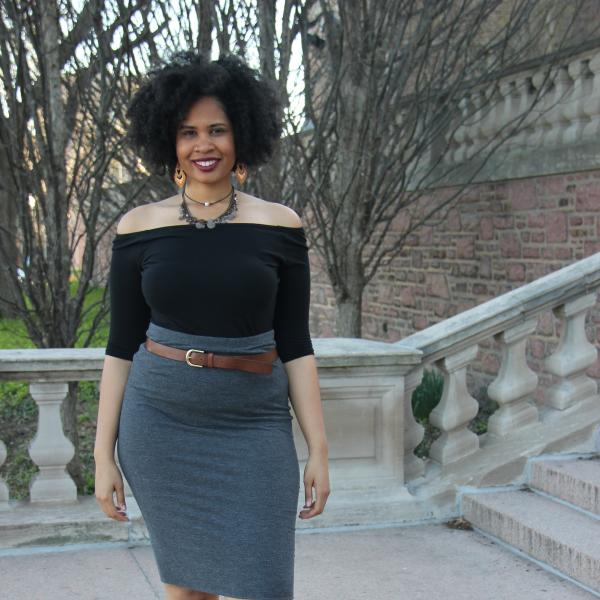
Mimi Borders: Class of 2018

Majors: History and Women, Gender and Sexuality Studies
Project: The Possibility of Desire: Sexual Choice within US Colored Troops Widow’s Pensions
My project examines the function of slave marriage in the production of familial ties within the lives of black women at the moment of “freedom”. I utilize queer theory in defining the contours of black sexuality and non-normative kinship structures. Overall, I will explore the creative ways black females produced their own sexuality in an attempt to thrive within a violent society.
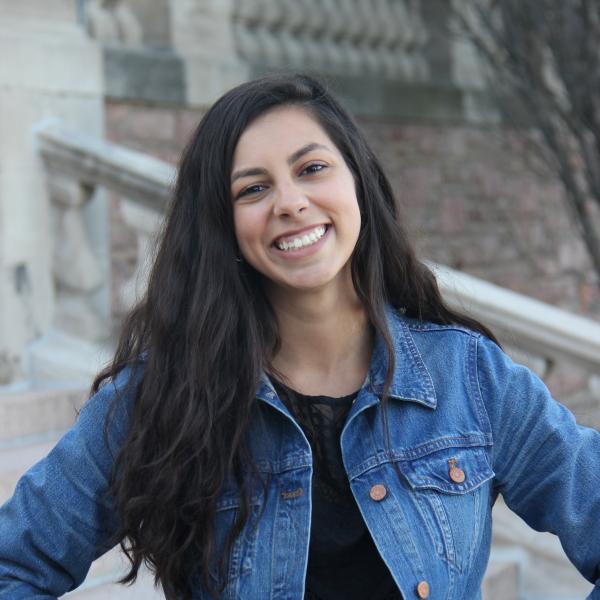
Savannah Jacobson: Class of 2018
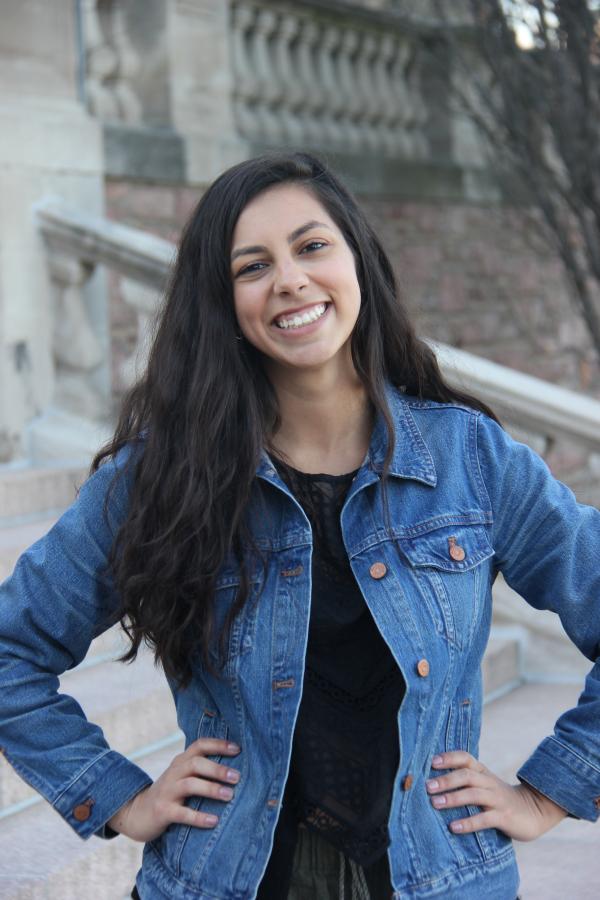
Majors: History and African and African American Studies
Project: “The Evil Was in Her”: African American Women’s Participation in Informal Economies During the Great Migration in New York City
My project takes place in New York City during the early years of the Great Migration, and looks at how black women formed informal economies as a means of survival and resistance. I use the Great Migration and the Harlem Renaissance to explain the rise of sex work and other forms of criminality. My project then explores how working-class black women catered these informal economies to their needs on both an individual and community level.
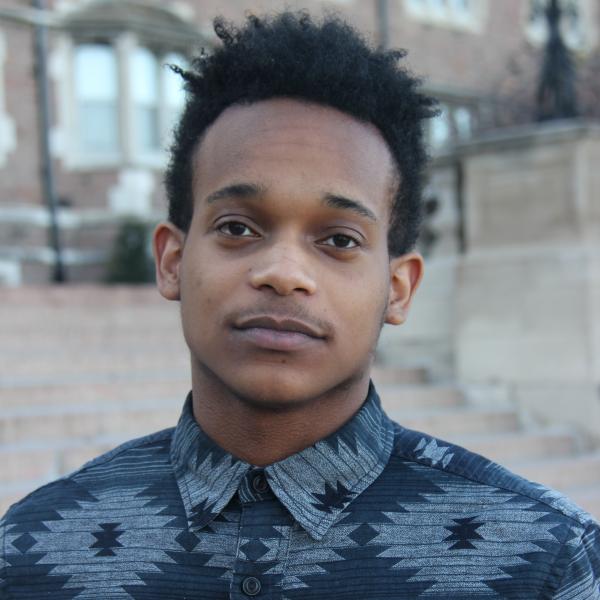
T-Herbert Jeffrey: Class of 2018
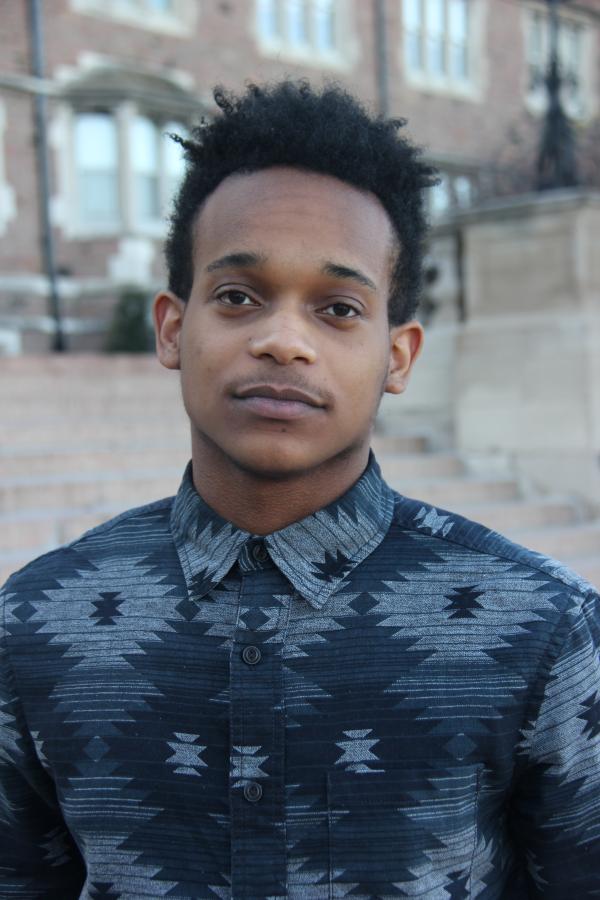
Major: Philosophy
Project: An Inconsistent Triad: Conflicting Intuitions on the Nature of Suspicion
This project explores the ethics of suspicion. What, if anything, is wrong with suspecting that a person from a certain demographic will do some action based on how others in his demographic act? Can police permissibly pull over unknown people simply because they match a description, and if they can, how should they act when they do it?
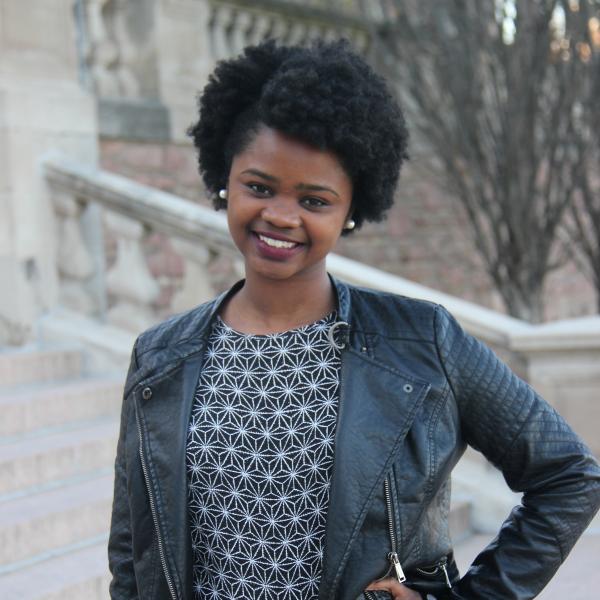
Kiara Sample: Class of 2018
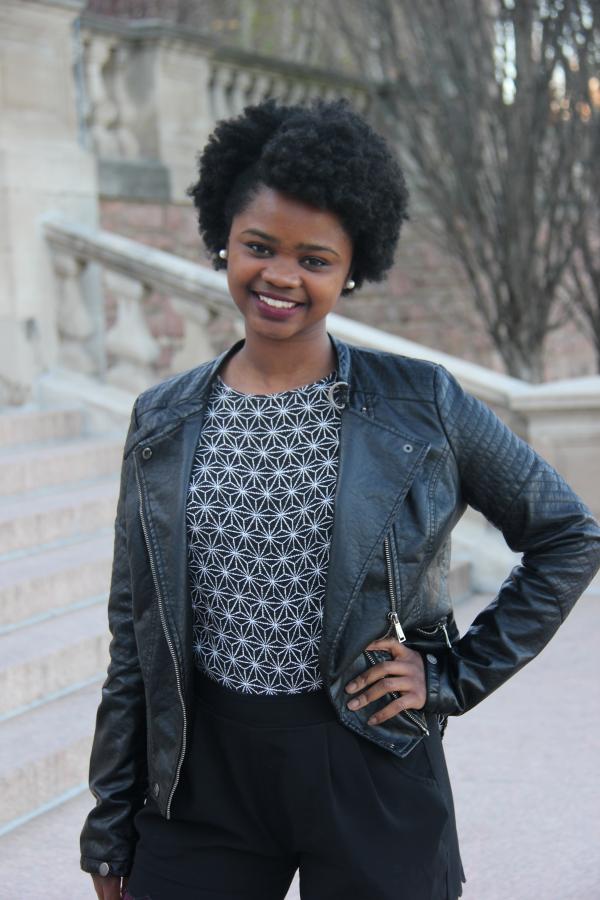
Majors: African and African American Studies and Psychological and Brain Sciences
Project: “The Walking Wounded”: Race, Gender, and Surveillance in the Lives of Radical Black Women
My research creates an understanding of the influence of race and gender on the FBI’s surveillance of radical Black women. The methods and tactics used by agents under the FBI’s Counterintelligence Program (COINTELPRO) is the focus of my research. Components of their FBI file such as the language used to describe them, the content included and not included in each file, and the narrative built by the agents and informants, are comparatively analyzed across gender and across time beginning in the 1940s.
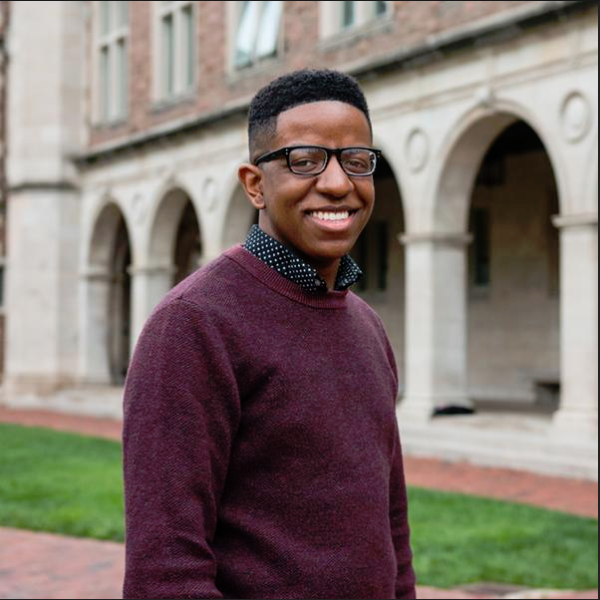
Clayton Covington: Class of 2019
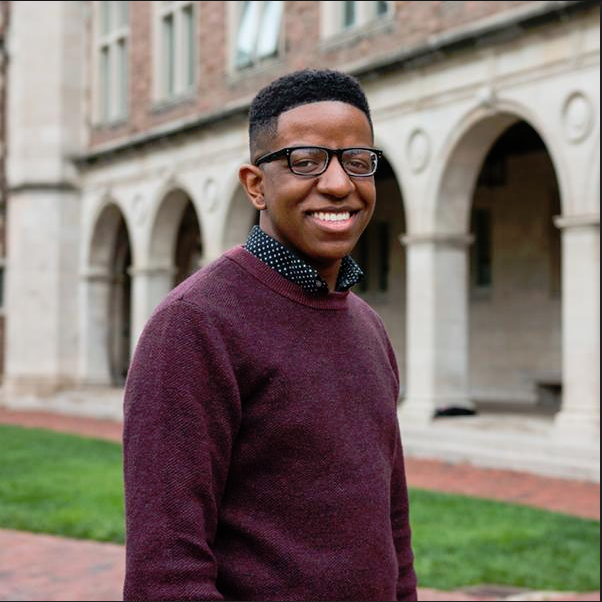
Majors: International and Area Studies: Global Cultural Studies and Latin American Studies
Project: Unsettling Homophobia: Sex, Marriage, and the Law in Jamaican Statecraft, 1930-1970
In 2006, Time Magazine released an article referring to Jamaica with the title, “The Most Homophobic Place on Earth?” Citing the notorious lyrics of dancehall artist, Buju Banton, antiquated anti-sodomy laws, and high rates of violence against LGBT individuals, this article catalyzed a wave of international criticism directed at Jamaica’s alleged “backwardness.” In suggesting that Jamaica is an exceptionally homophobic place, cultural and scholarly critics often pathologize Jamaicans—even going so far as to identify the source of homophobia as a “collective cultural dementia.” Rarely do these critics discuss the experiences of struggle and triumph for LGBT Jamaicans. Instead, they focus on ways to socially and economically punish Jamaica for its “immorality.” This project, however, complicates the generalized narrative regarding Jamaican homophobia as pathological. Arguing that Jamaican homophobia is a
colonial legacy that persisted within Jamaican statecraft even after the period of decolonization, this project traces nationalist projects, dynamic legal frameworks, and the work of religious institutions in the era of independence. Reframing Jamaican homophobia in this manner acknowledges the dangerous realities that face the LGBT community without participating in the frequent erasure of Jamaican LGBT individuals and their equally important resistance.
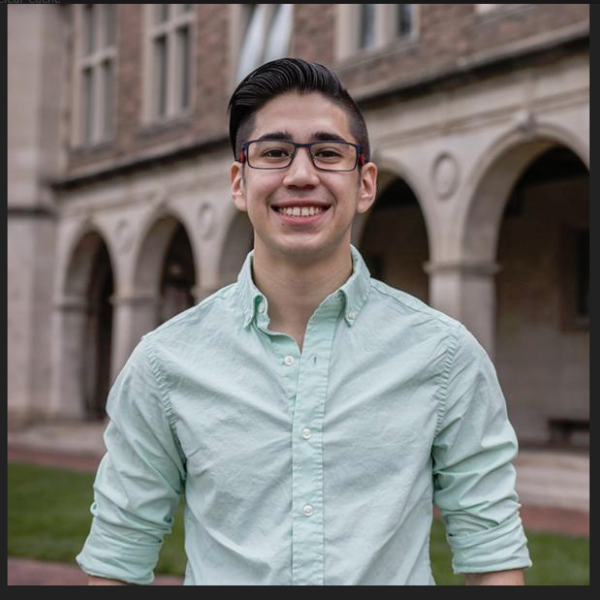
Misael De la Rosa: Class of 2019
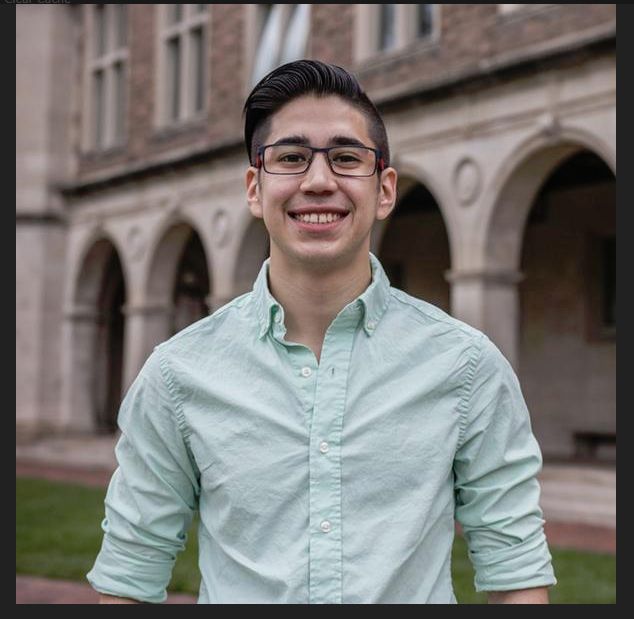
Majors: Spanish and Comparative Literature
Project: Voice Alchemy: Alurista, Floricanto, and the Translation Poetics of Chicañol
During the 1960s, Chicanos defined themselves and their literature through the deliberate use of code-switching in order to best represent their lived speech in literature. This led to the development of what I call Chicañol: a hybrid form of language that combines English and Spanish in order to best translate the experience of the Chicano. Central to this project is the Chicano poet Alurista (Alberto Baltazar Urista Heredia) due to his leading role in the development of Chicano poetry as an established poetic tradition. Taking inspiration from the Nahuatl poetic tradition of the Floricanto, Alurista borrowed certain aspects such as the orality of the poetry in order to develop his foundational poetry collection Floricanto en Aztlán. As a result, Alurista was successful in creating a tradition that contained multiple layers of history, culture, colonization, and marginalization that needed to be considered and translated into a communicable form. This resulted in the adoption of Chicañol as the form that such experiences needed in order to be communicated to the Chicano, the Mexican, and the American. This project examines the translation poetics of Chicañol from its origins in the Floricanto to its revamping by Alurista.
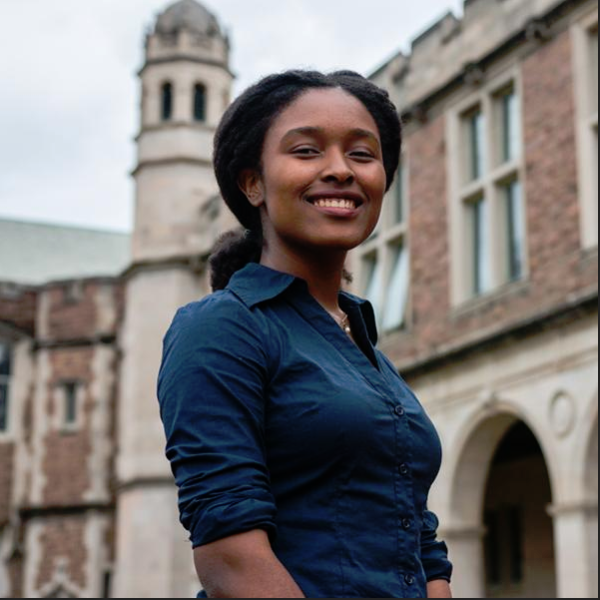
Ebonie Pollock: Class of 2019
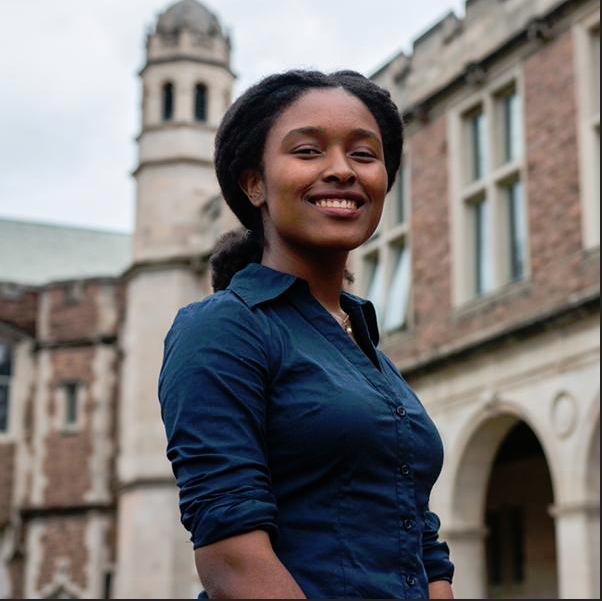
Major: Art History
Project: Reconstituting the Life of the Black Artists’ Model in Interwar Paris
Following the end of World War I in November of 1918, Paris increasingly operated as an essential pole of the African diaspora while simultaneously compelling diasporic peoples to navigate the city as the burgeoning center of Negrophilia and French imperialism. In 1919, at the dawn of this new era, Suzanne Valadon painted a series of five paintings with a black woman as their subject. Identified by scholars as the mistress of Valadon’s son, Maurice Utrillo, and variously referred to as a Négresse, Mulâtresse, or Esclave, the woman in the paintings carries a specific and particular likeness and yet, her identity is obscured, elided by the applied nomenclature of the exoticizing French colonial imagination. This project reimagines the lives of black artists’ models in interwar Paris through the use of photography, diaries, memoirs, periodicals and oral histories that privilege the voices of black women, thereby reconstituting the agency of the black models of the interwar period who have traditionally occupied a marginal historical space. Using Valadon’s series as a locus of inquiry, this project investigates the limits of the Western archive and its ability, or lack thereof, to accurately reflect the narratives of black women in the French interwar period.
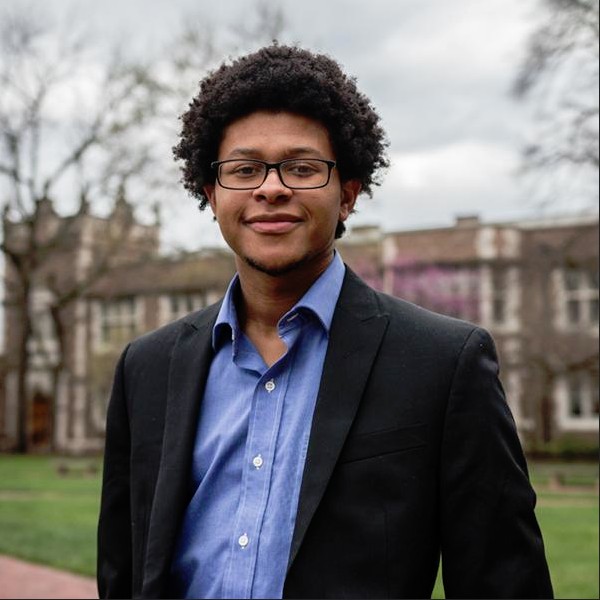
Adon Wade-Currie: Class of 2019
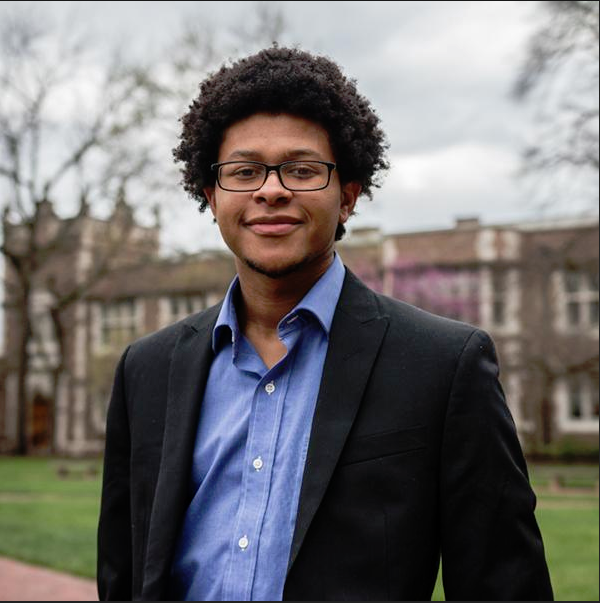
Majors: Urban Studies and American Culture Studies; Arabic minor
Project: Hip-Hop in the Margins: Contemporary Hip-Hop Activism in Chicago
In recent years, the city of Chicago has become known for the rampant gun violence plaguing its black communities. Such representation in mainstream media not only racializes issues of gun violence, but encourages pathologizing black Chicagoans (and Americans, generally) as criminal by nature. This project examines how three Chicago-based underground rappers, Chance The Rapper, Saba, and Noname, who each released a breakthrough album in 2016, are challenging the prevailing narrative of black Chicagoans. My project theorizes about how the communities that each of these artists grew up in (all on Chicago’s South Side) influenced the work they do today. As underground rappers, each of these artists is also oriented towards representing the complexity of black life and community which both become flattened by mainstream media. Chance The Rapper portrays himself as a proud black father in an era where mass incarceration tears apart black families at alarming rates and single black mothers have become the norm. Facing the very real possibility that on any given day he could be on the receiving end of a bullet, Saba raps a future in which he and his fellow Chicagoans may live out their dreams. And Noname demonstrates that black women can enjoy sex without being sex objects.
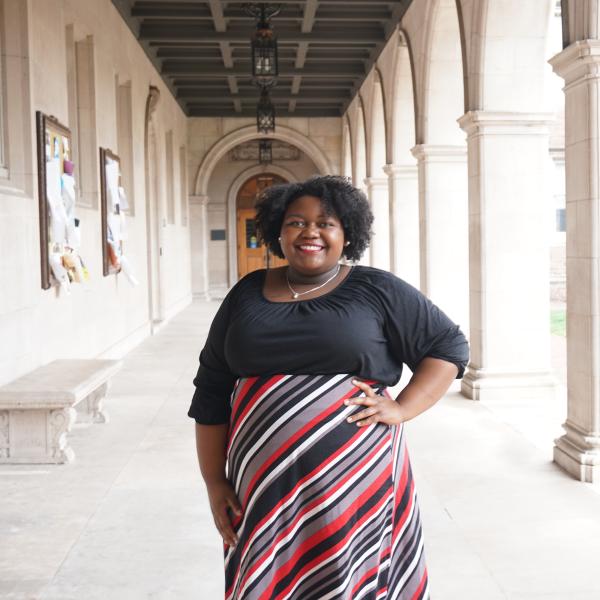
Amanda Everett: Class of 2020
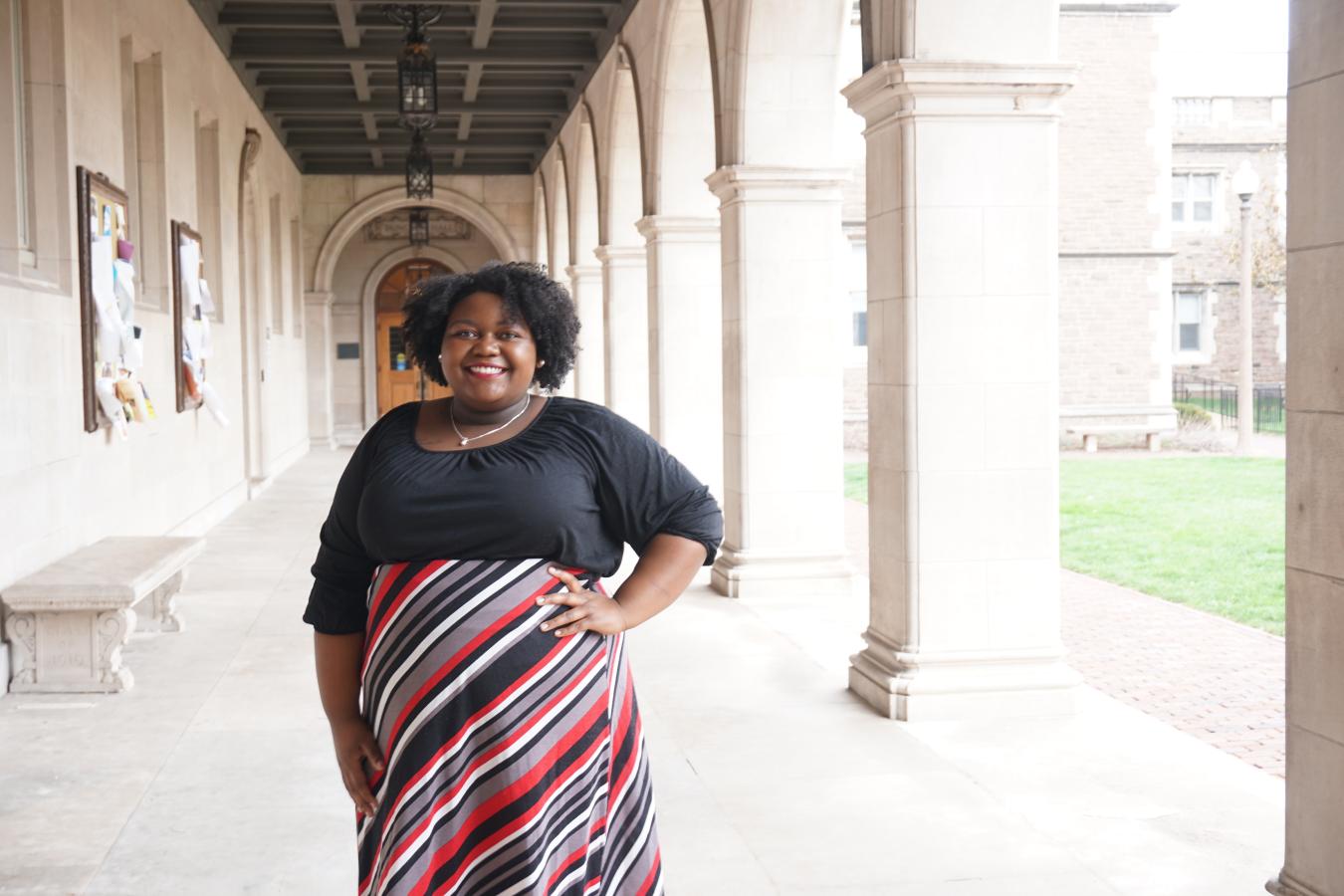
Major: African and African American Studies; Comparative Literature minor
Project: The Foundations of Black Feminist Theory through Literary Representations of the BlackWoman’s Experience
This project involves discovering how Black women’s creative writing and contributed to the development of Black Feminist ideology between 1975 and 1990. Through close textual analyses of Gwendolyn Brooks’s selected poems, Ntozake Shange’s nappy edges, and Toni Cade Bambara’s Gorilla, My Love, I will show how the representations of the Black woman’s experience by Black women writers were fundamental in the formation of a unified Blackfeminist ideology. I selected these works as ones that encompassed several themes, such as sisterhood and grief, that were, in many ways, definitional of the lived experience of Black women. As precursors to Patricia Hill Collin’s 1990 work, Black Feminist Thought, these creative works helped build the foundation for the developing Black Feminist movement. I chose to base my research on Collin’s Black Feminist Thought, because it is widely considered to be the first book that provided an intellectual framework for the field of Black feminist theory. My project will give an overview on how the aforementioned works informed and contributed to the growing field.
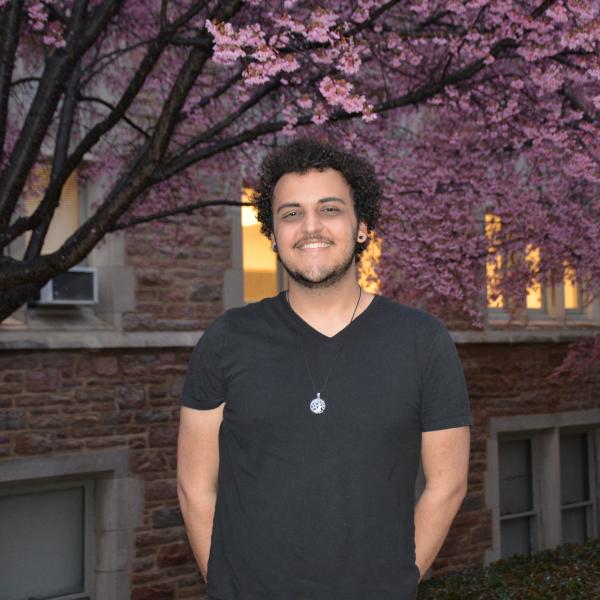
Yousef/Theaivin Gaber: Class of 2020
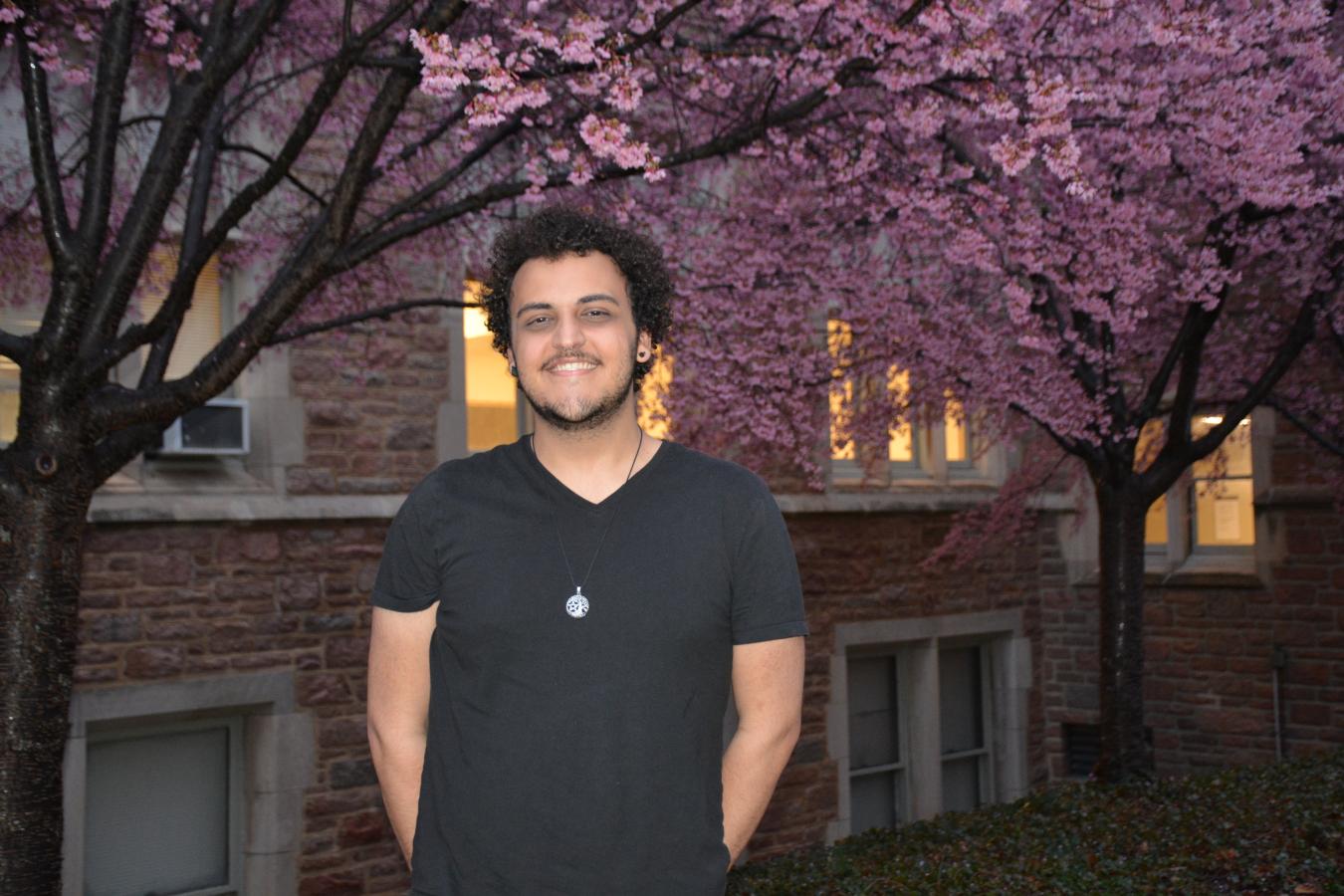
Major: Women, Gender, and Sexuality Studies
Project: Sensual Power and the Nation
This project explores the mutual construction of the american nation-state and its subjects through the lense of sensation. Sensations are a vital component of our subjecthood, they organize the way in which we navigate the world; I contend that the american nation-state has, through its violent colonial history, manipulated sensations to create and maintain the categories of race and gender on which it relies. I examine the 4th of July, a spectacular display of nationalism that has become an intimate part not only of our cultural surroundings but also of our sensory surrounding. Using the 4th of July as an object of study we can imagine how this highly sensory celebration calls on american histories of whiteness and colonization in order to construct subjecthoods that are easily incorporated into the nation-state. In this, I am inspired by queer of color theorists like Jasbir Puar, Sarah Ahmed, Mel Chen, and Kyla Schuller who all probe the construction of subjects and nationalism with attention to affect. Taking from them, my project examines the nation’s sensory arrangements in order to show the racist stakes in participating in displays of nationalism.
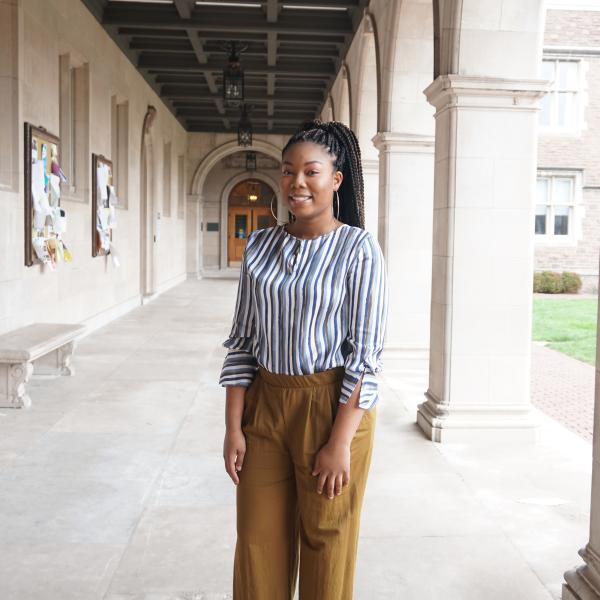
Nya Hardaway: Class of 2020
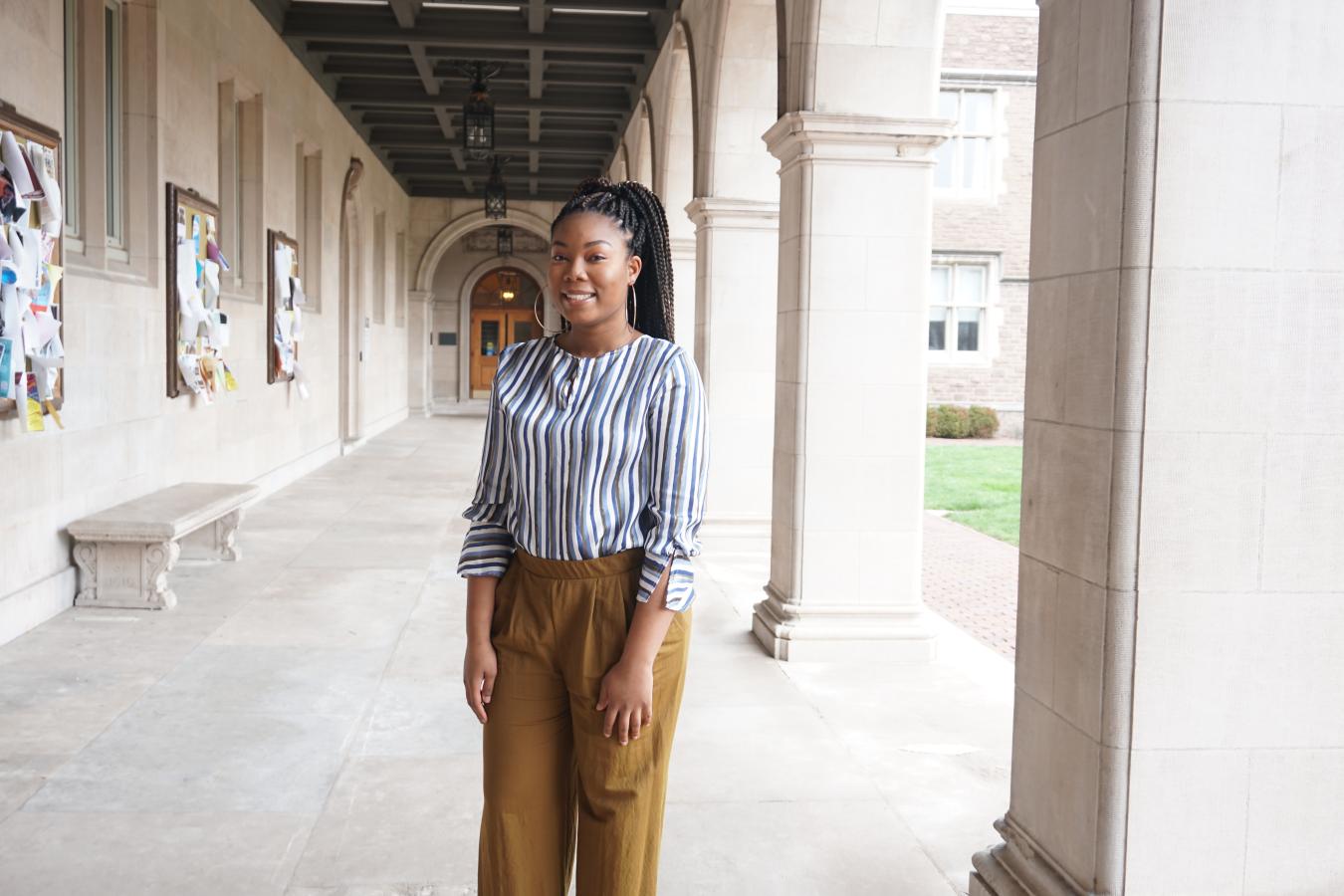
Majors: African and African American Studies and Women, Gender, and Sexuality Studies; Writing minor
Project: “Blue, Queer Love”: Examining the Sexual Embodiment of Black Women’s Blues Music
Exploring how Black women perform sexuality as an expression of freedom through music, my research focuses on the manner in which Blues music shaped the performance of sexuality among working-class Black women during the 1920s-1940s. I concentrate specifically on the city of Cleveland and its Black club nightlife. My examination of Cleveland will expand the discourse on the nationwide impact of women’s early 20th century Blues music as it was a popular migration city that is seldom recognized. I analyze working-class queerness and Black women’s perception of sexuality during Bessie Smith and Ma Rainey’s tours through Cleveland and the effects of their music on the manifestation of sexuality in the area. Specifically adding to previous scholarship which primarily centers on lyrical analysis, I will examine the reception of nightclubs in media, church initiatives led by Black women, and visual and textual incorporation of aspects of performances and lyrics into the embodiment Black women’s queerness. Ultimately, I provide a new understanding of working-class women’s experience of freedom and mode of rejecting middle-class values and sexual tyranny.
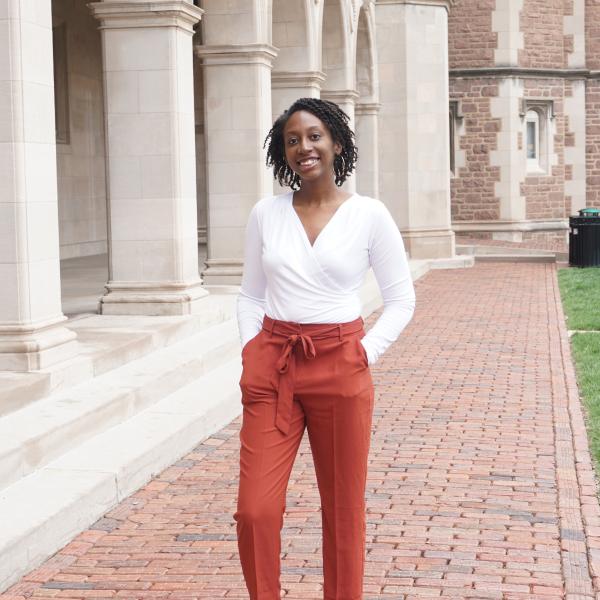
Taylor Smith: Class of 2020
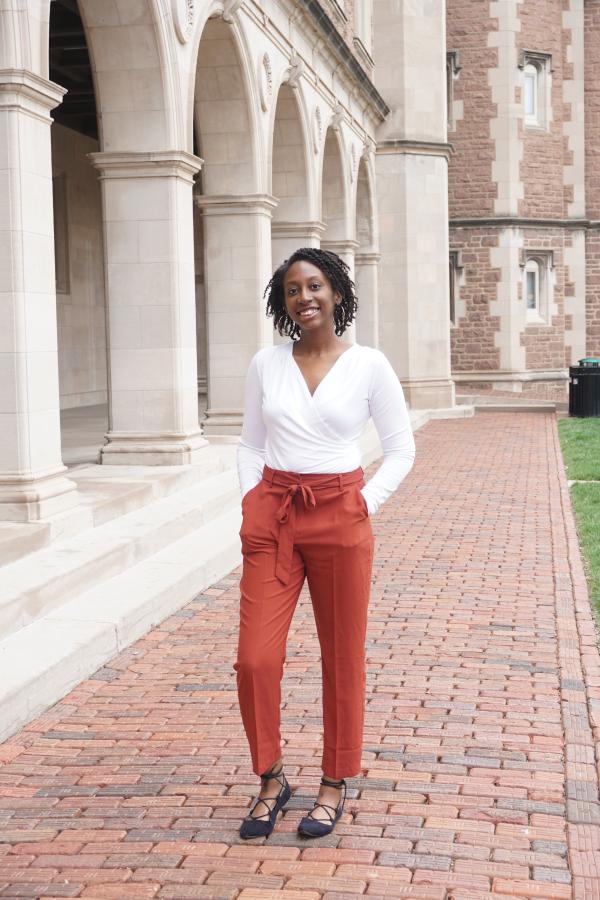
Major: African and African American Studies
Project: “The Depth Within”: Conceptualizing the Aesthetics of Black Women’s Interior Self in Media
In recent decades, Black women have taken more agency in the creation, transmission, and circulation of their art in the areas of literature, television, and digital media. My research aims to explore how Black women conceptualize and contextualize themselves intimately and socially in those realms. This will be accomplished through the cultivation of a conceptual framework of the ways Black women interpret, translate, and replicate stories of the “Black interior” into consumable media for varying audiences and registers. Scholar Elizabeth Alexander defines the Black interior as the internal intellectual space where Black people without stereotypes. The research will be conducted through close readings and textual analysis of literary texts, and visual and cultural analysis of film, and digital media. More specifically, I will explore the changes and continuities between Zora Neale Hurston’s Their Eyes Were Watching God (1937) and the adaptation by Harpo Films (2005), Ntozake Shange’s For Colored Girls (1976) and Tyler Perry Studios’ 2010 film,1985 Steven Spielberg directed film recreation of Alice Walker’s The Color Purple (1982), Issa Rae’s Awkward Black Girl and her HBO series, Insecure. Ultimately, this work will add to the overall conversation about the politics and aesthetics of Black female representation in media.
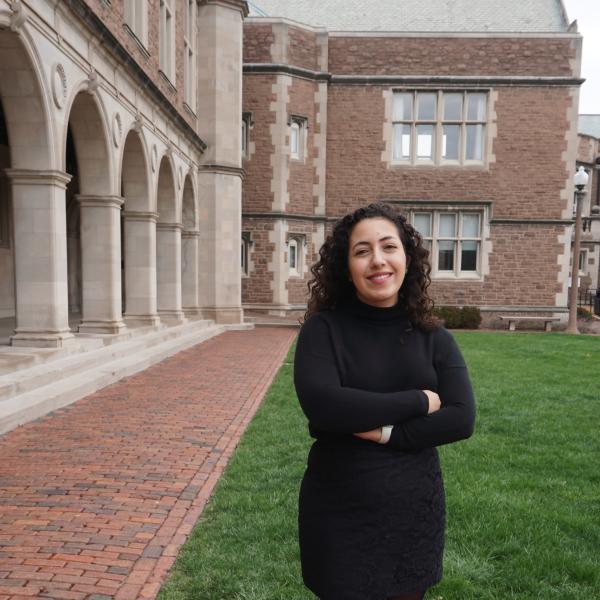
Amelle Zeroug: Class of 2020
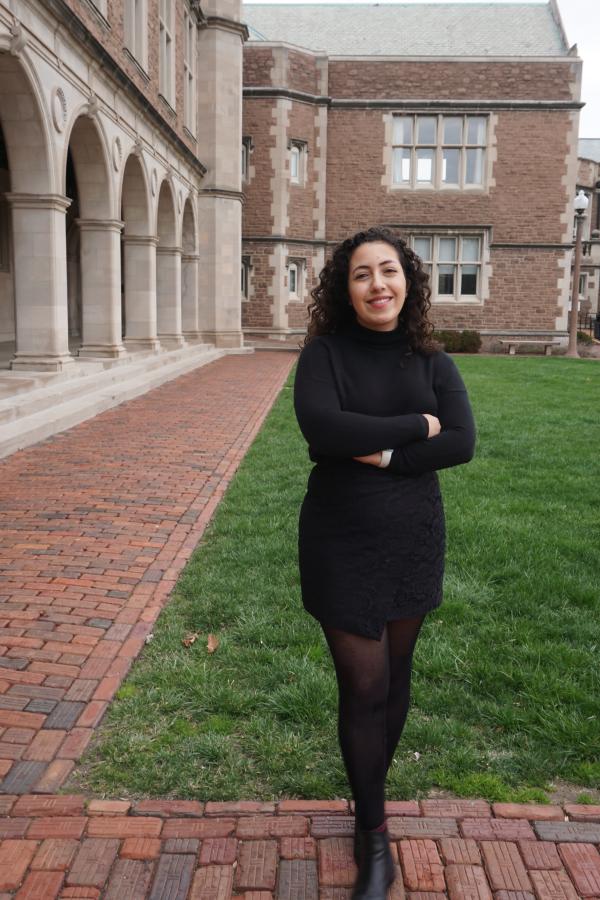
Majors: History and Political Science
Project: Nos Ancêtres Les Gauloi: Gender and National Identity in the Algerian War for Independence
Algerian women were prominent participants in the liberation struggle against French colonialism which culminated into a war lasting from 1954 to 1962. Despite their participation in both urban and rural guerrilla warfare, contemporary histories of the Algerian War consistently and systemically obscure their contributions, while those that do, fail to express nuance. Western scholars push the narrative that Algerian women’s militancy was an aberration from the Islamist, patriarchal societal expectations of women. However, these scholars fail to recognize that women joined the resistance alongside family members and were rarely discouraged from entering the conflict. On the other hand, the modern state emphasizes a hyper-nationalist rhetoric that hails the participation of women as a demonstration of gender equality in Algeria and fails to acknowledge the difficulties these women had in reintegrating society following the independence of Algeria. Both perspectives draw upon truths; Algerian society neither fully condemned or condoned these militant women, and their experiences are multi-faceted such that they cannot be defined using solely nationalist or neo-liberal rhetoric. My research attempts to locate the space Algerian women occupy and their militancy beyond traditional approaches in order to understand the relationship between gender and state in conflict.
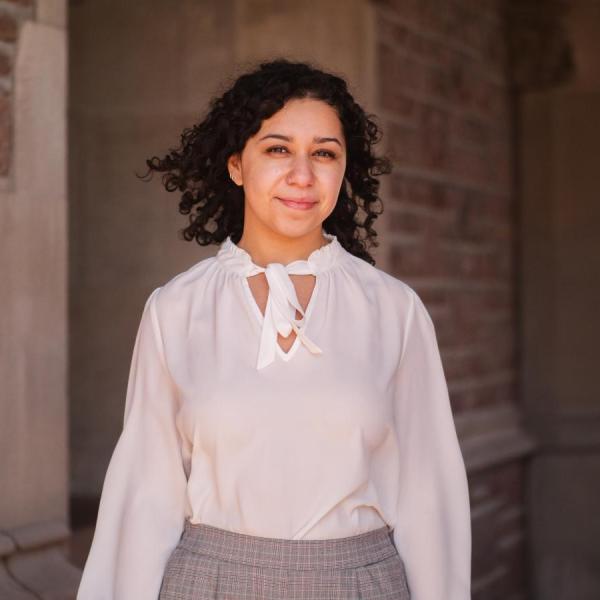
Shayna Finkelstein: Class of 2021
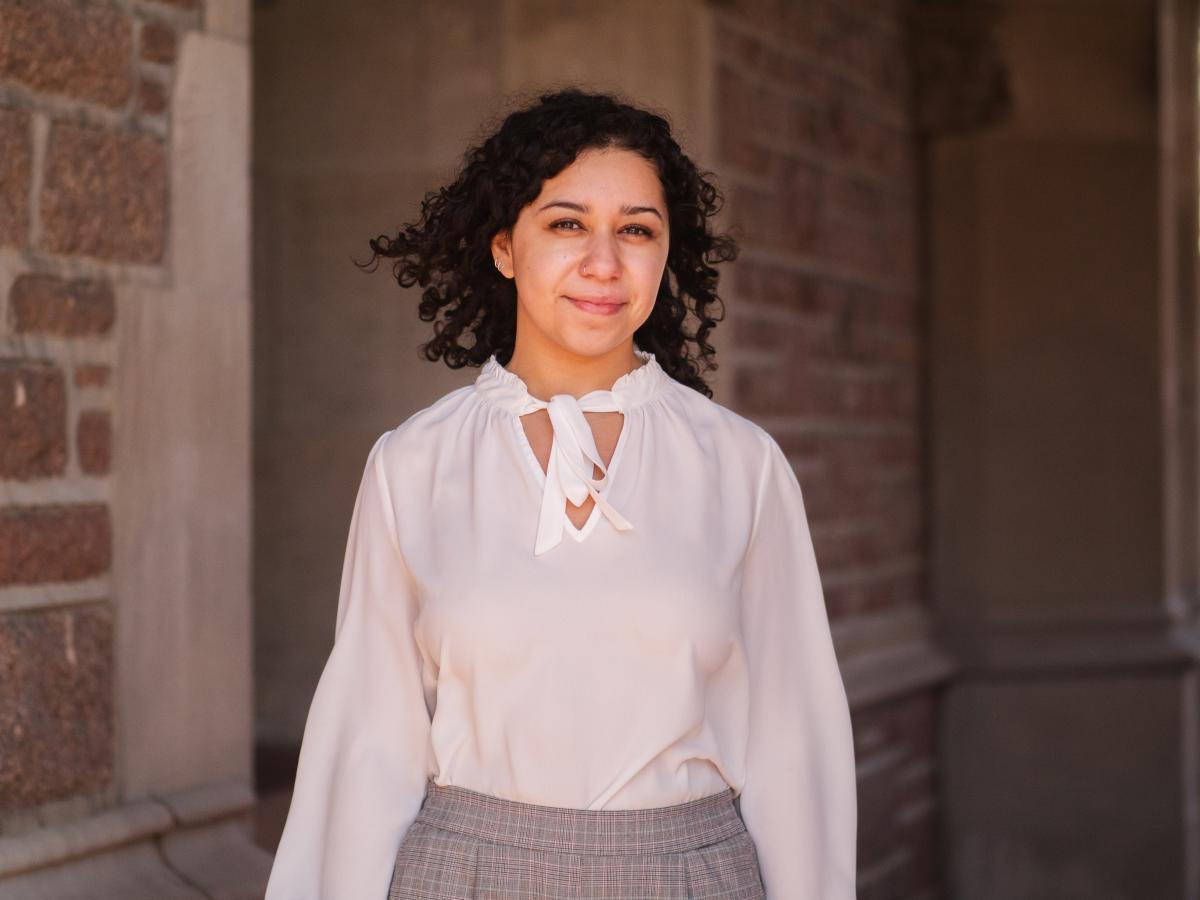
Major: International and Area Studies: Global Cultural Studies
Project Title: Race and Fascism in Authoritarian Governments
Project Description: My research focuses on race and fascism in Brazil’s military dictatorship and the German Nazi Party. In particular, I am trying to address how racial hierarchies are constructed and exercised during an authoritarian rule to create a dominant ruling party, using the Third Reich and Brazil as case studies. Additionally, I would like to examine how national socialist ideology influenced 1930s Brazil and how it skewed social conditions towards fascism in Brazil.
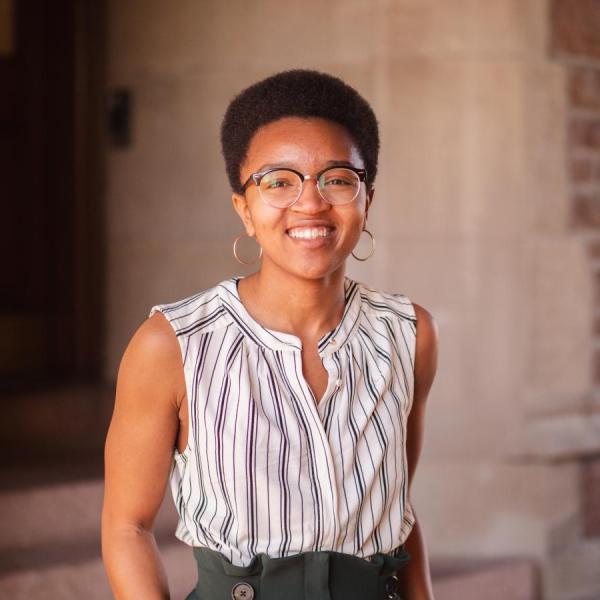
CeCe Heard: Class of 2021
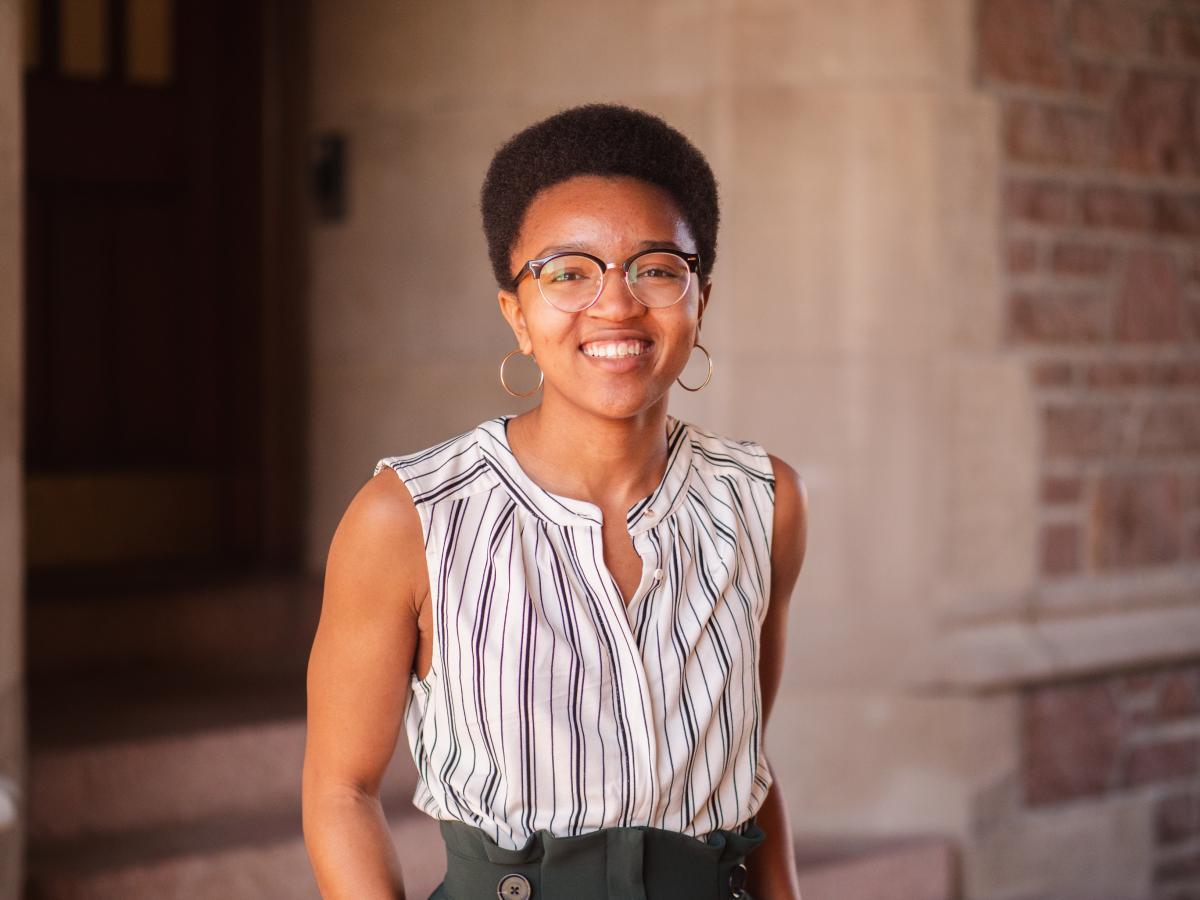
Major: English Literature
Project Title: Freedom of Quiet: Understanding the (In)authenticity of Black Women’s Intimacies
Project Description: Blackness has always been tied to resistance. In the current era, this resistance commonly manifests as performances of Blackness that are loud, unapologetic, and always having to do with race. My project aims to understand how the expression of Black women’s intimate selves – their private thoughts and desires – work for or against racial resistance, and the subsequent push for racial solidarity and acceptance. Through visual cultural analyses of media productions that exceed racial boundaries, my project explores how Black women’s intimacies become the place at which their racial authenticity is policed.
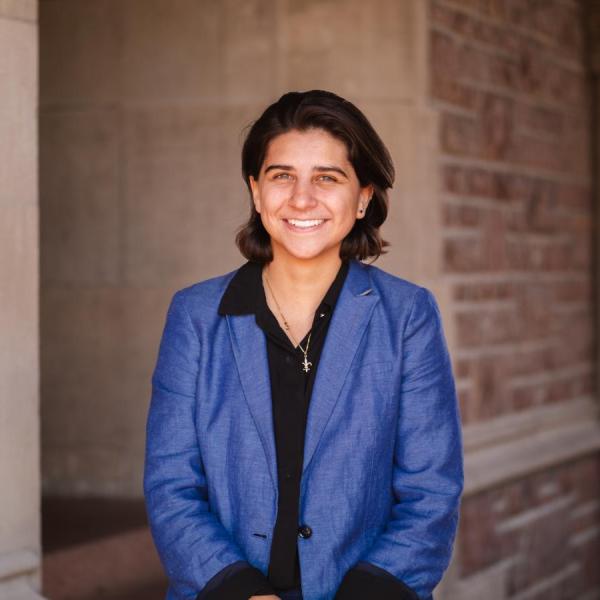
Antonia (Toni) Augilar Rosenthal: Class of 2021
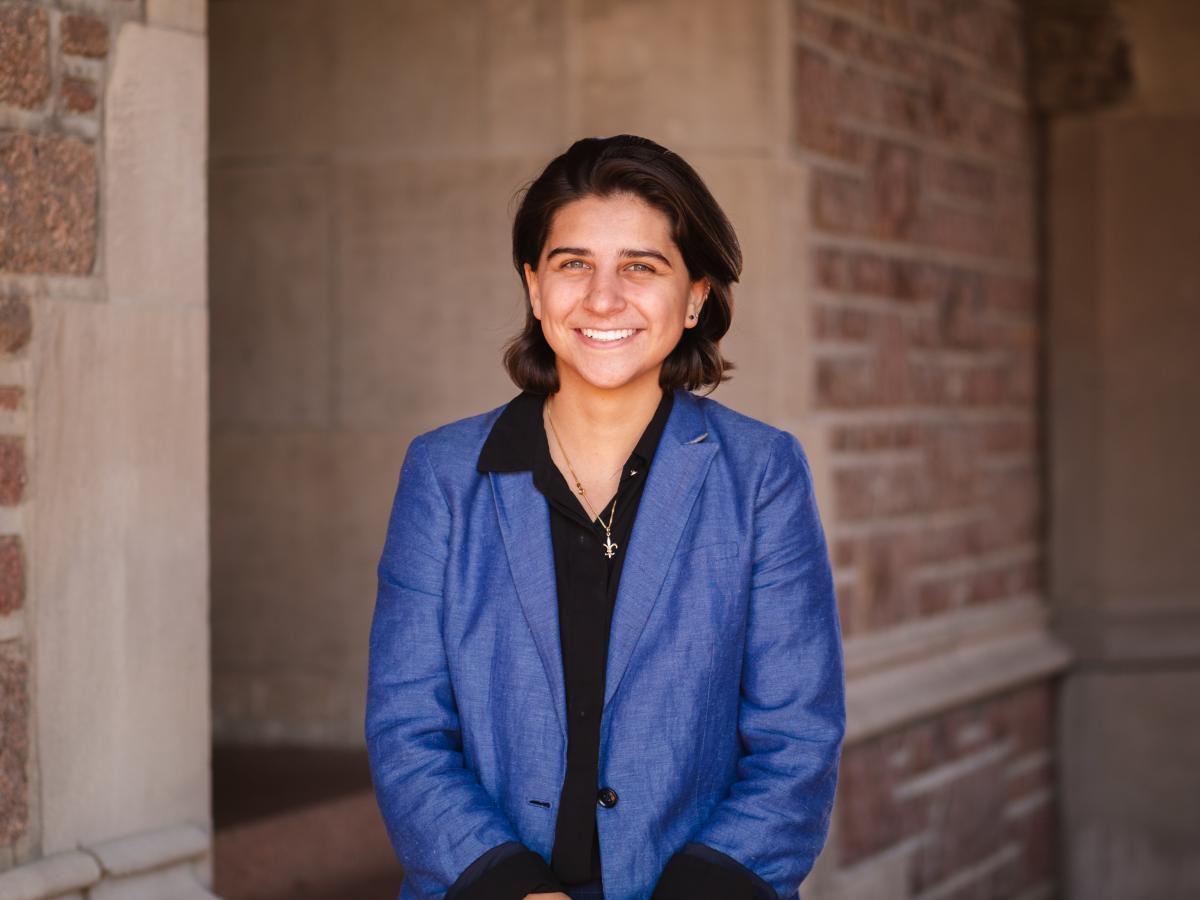
Major: Classics & American Culture Studies
Project Title: The Devil Wears Dior: Cultural Appropriation in High Fashion and the American Cultural Construct of “Nativeness”
Project Description: My project seeks to analyze the appropriation of Native North American fashions, namely that of the eagle-feather war bonnet, in high fashion. I plan to examine the ways in which this appropriation enforces and builds colonial structures of oppression through re-historicizing the exploitation of Native North American fashions within changing American cultural constructions of “Native-ness” during three key periods: policies of “Indian Assimilation” of the late 19th century, the Hippie movement of the 1960s and 1970s, and John Galliano’s tenure at Dior. In doing so, I plan to gain a better understanding of what appropriation is, why it matters, and the continuing legacy of colonialism on Native communities.
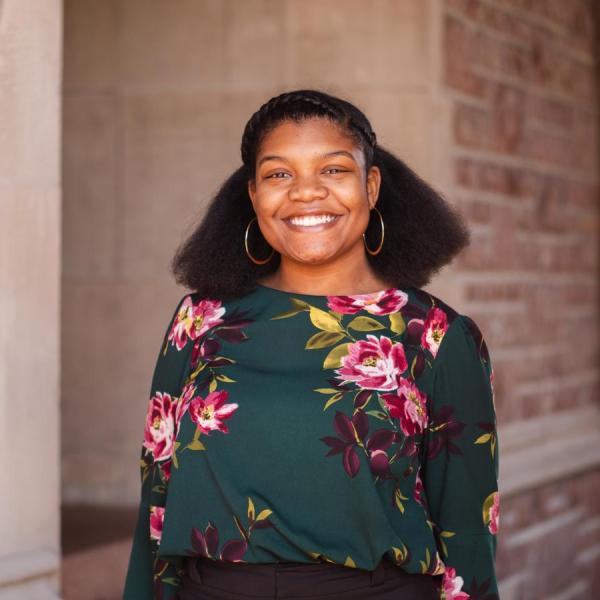
Cienna Townson: Class of 2021
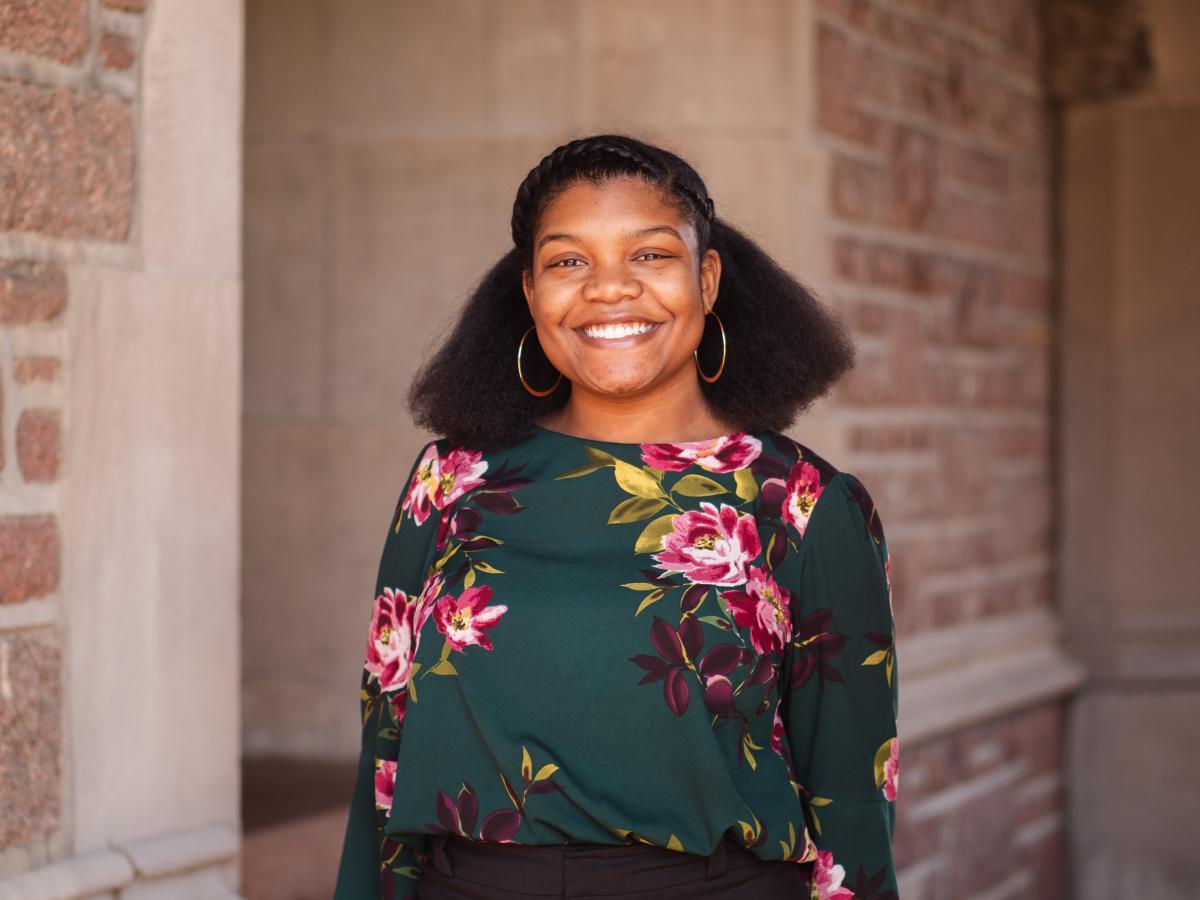
Major: Linguistics
Project Title: Who’s Laughing Now?: Characteristics and Implications of Mock White Voice in Black Stand-up
Project Description: My project will identify the linguistic characteristics of Mock White voice used by Black stand-up comedians. In addition to discerning the phonological, lexical, and morphosyntactic features of Mock White voice, my project will examine these performances through a sociocultural lens. Given the long history of using Black people as a source of entertainment, I plan to evaluate the ways in which Black stand-up comedians reconcile their dynamic, on-stage performances that mock White people with the fact that they perform for predominately White audiences.
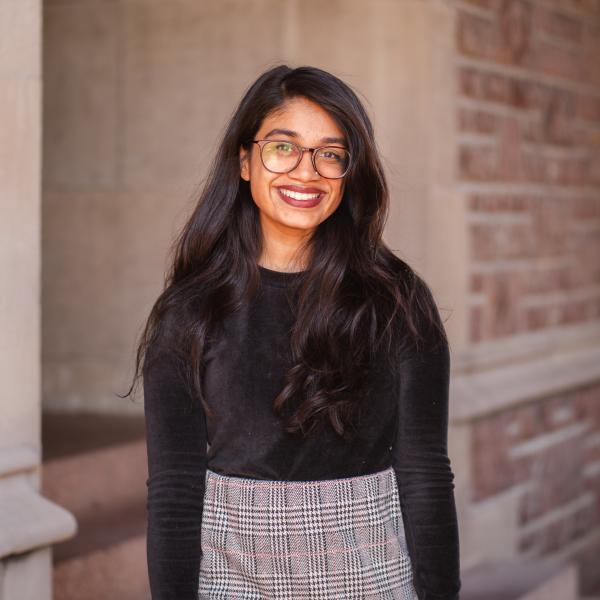
Siddhi Vora: Class of 2021
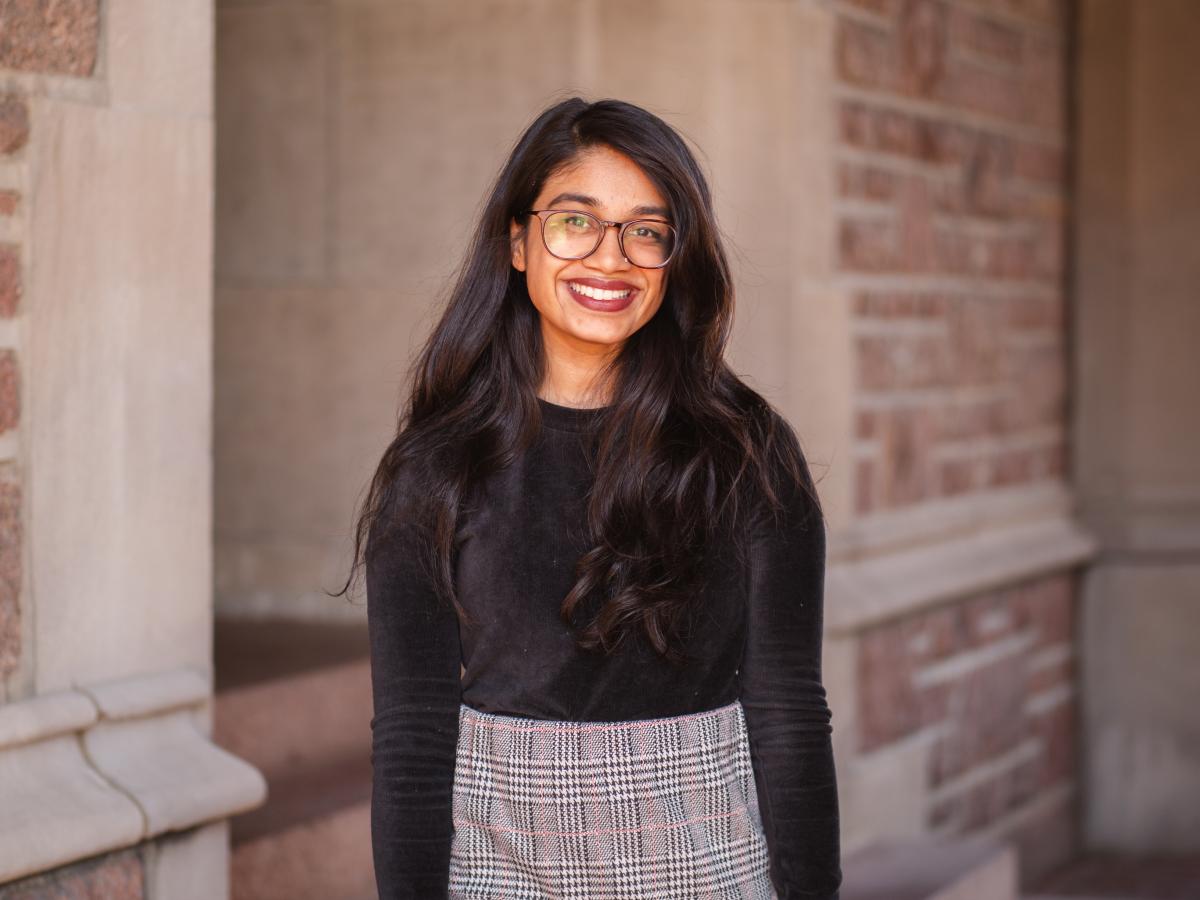
Major: Women, Gender, and Sexuality Studies
Project Title: Speaking Her Truths
Project Description: The Kutch district in the state of Gujarat in India is home to the various semi-nomadic and pastoral Kutchi people who speak the Kutchi language, a language with no written script. While most Kutchis are bi and trilingual, using modified versions of other languages, a large part of Kutchi heritage is connected to its oral history and folklore. I am interested in what groups are “allowed” to record the Kutchi history and make their way into formal histories. Who is rendered invisible in history and left out of the discourse? What are the entry points into this process for marginalized groups? Most importantly, I am interested in discovering the ways that marginalized women make a space for themselves, their truths, and their history.
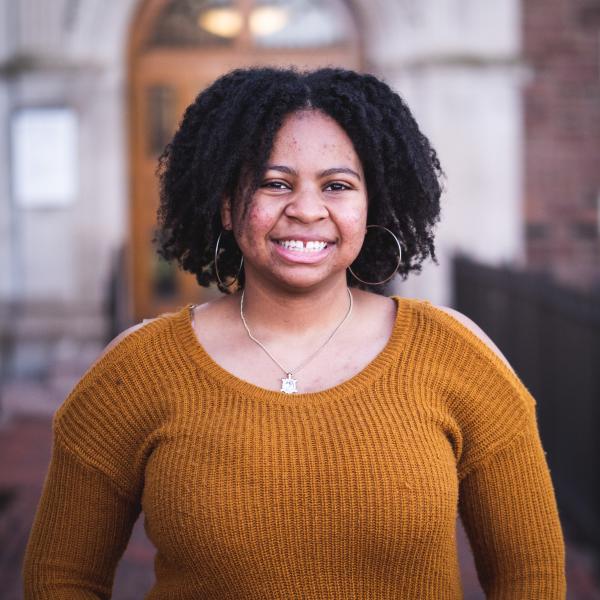
Zari Muhammad: Class of 2022
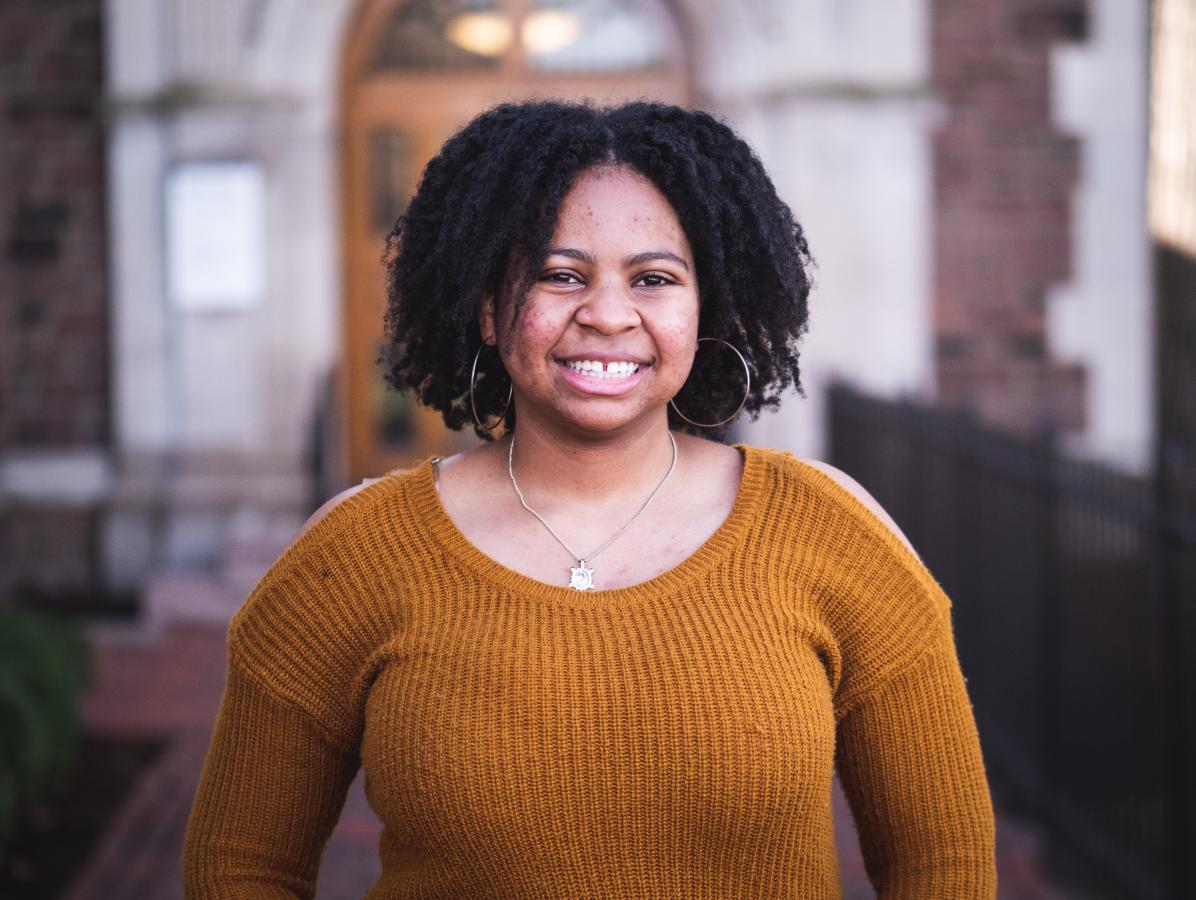
Major: African & African American Studies. Minor: Arabic
Project Title: "'Nothing but the Son of a Black woman': What makes Black Islam 'inauthentic'"
Project Description: My project will focus on the creation of Black branches of Islam from North and West Africa to North America. In order to understand the implicit social and racial hierarchies within Muslim communities in North America, one must fully understand the history of Islam in Africa. After the expansion of Islam in North Africa the religion mixed with the values, beliefs, and practices of indigenous ethnic groups, like the Amazigh’en of North and West Africa, which ultimately creates forms of Islam racialized as “Black.” These forms are often considered inauthentic from the global Muslim community. My project will aim to understand why this disconnect occurs in the encompassing Muslim community and how to understand Islam and its racial components.
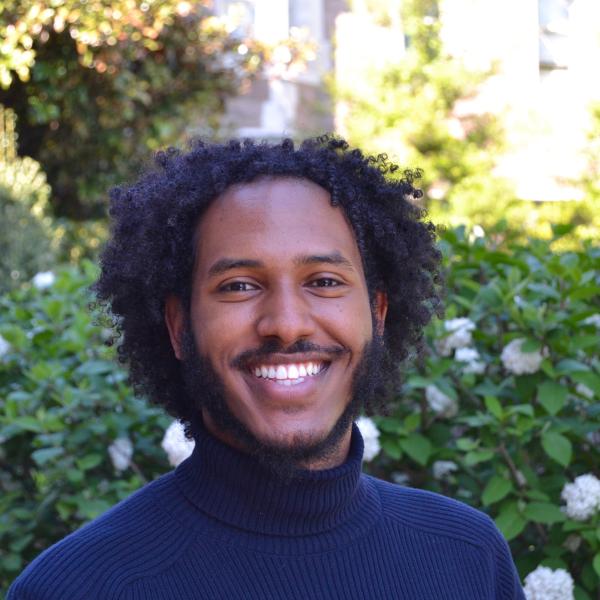
Yohanes Aleligne Mulat: Class of 2022
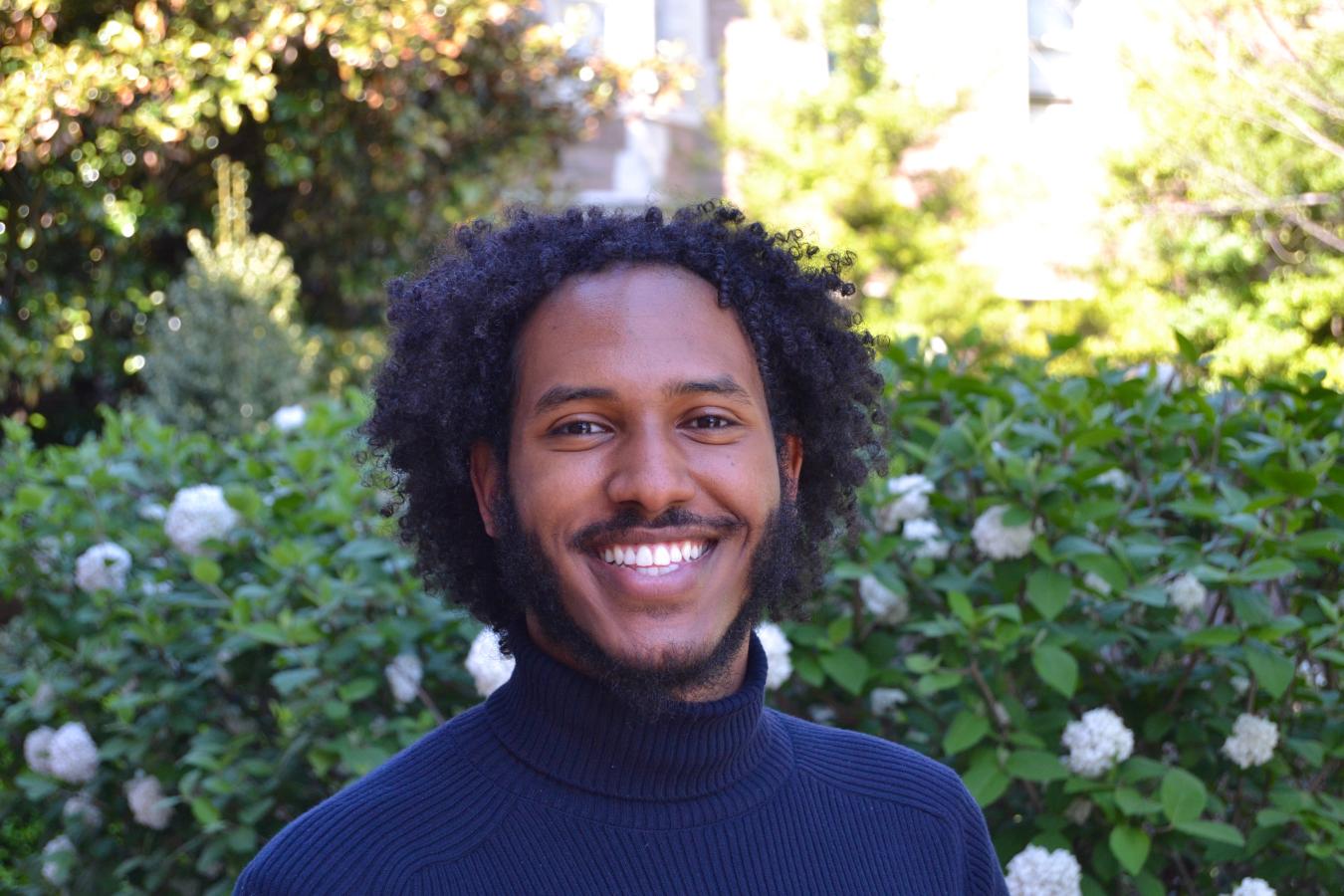
Majors: Religious Studies, Political Science. Minor: Arabic
Project Title: "Trans-generational Solidarity: How Fighting Imperialism Kept a Bond Alive"
Project Description: My project is an analysis of the trans-generational solidarity between Black American activists and Palestinians both in the '60s era with the rise of Black Power and today through the Black Lives Matter movement, tracing the rhetoric used in both eras and highlighting how the current BLM uses the same anti-imperial, pro-liberation rhetoric used during the '60s. Reexamining Black American and Palestinian solidarity is key to understanding how the transcontinental collaboration of marginalized groups fits into the Black freedom struggle both in the 1960s and now. By tracing this shared rhetoric, I intend to show how modern-day movements continue to emphasize a global responsibility in their fight for freedom.
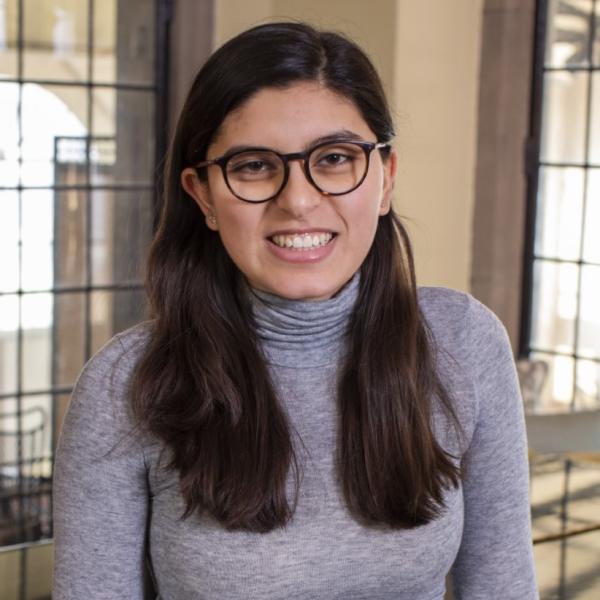
Gabi Senno: Class of 2022
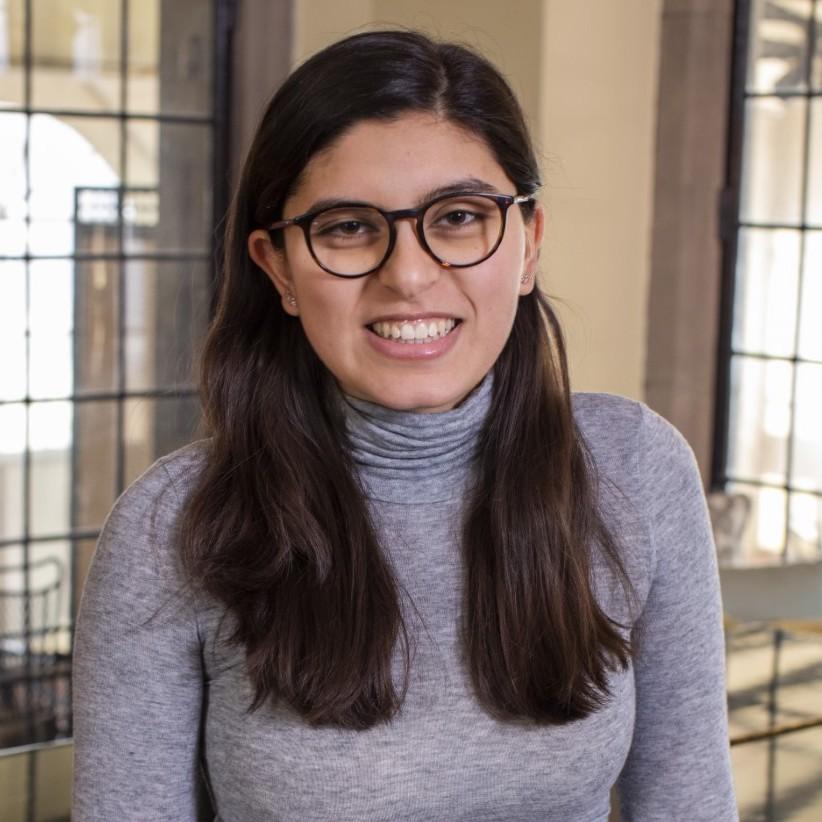
Majors: International and Area Studies (Global Cultural Studies), American Culture Studies. Minor: Spanish
Project Title: "Constructing Citizenship: The Role of Borders in Human Rights Violations"
Project Description: Sparked by the question “What happens when a border follows you?,” my research will focus on the capacity of state-imposed borders to suspend or limit access to citizenship and human rights. Specifically, I will analyze how racial minorities residing within the U.S., such as Japanese Americans, Latinx Americans, Native Americans, and African Americans experience borders, and how their status as racial “others” affects the degree to which they are integrated as American citizens. My goal is to highlight the common factors that unite these case studies, while also providing the nuance and individual attention each deserves.
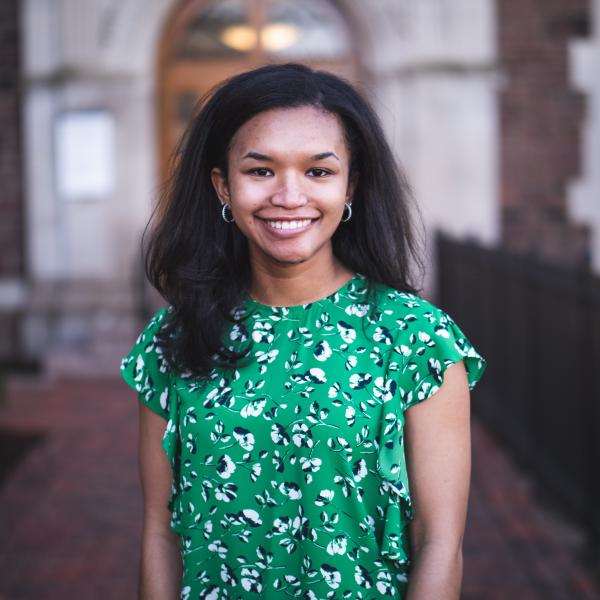
Kennedy Young: Class of 2022
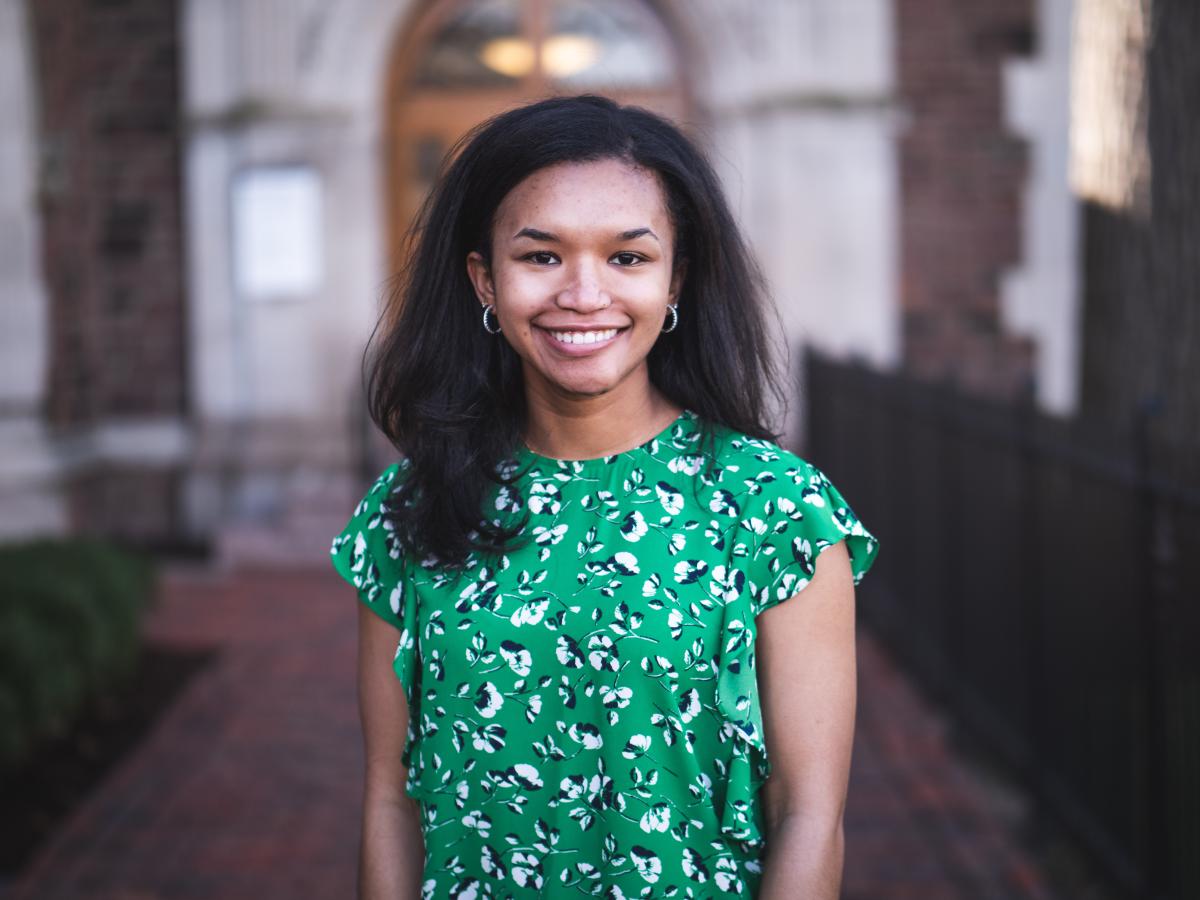
Majors: Sociology, African & African American Studies. Minor: Women, Gender, and Sexuality Studies
Project Title: “'Armed’ Career Criminals: An Examination of the Contradictions and Consequences of Firearm Possession”
Project Description: Despite the national trends towards decarceration, Arkansas’ prison population is rising, which makes the state a unique case study for revealing the ways macro-level policies shape local Black communities. My project aims to explore the racialized social impact of the Armed Career Criminal Act, a federal mandatory minimum policy, in the Eastern District of Arkansas for Black men and women. The project will integrate historical and feminist analyses with ethnographic methods and in-depth interviews to understand the personal experiences of Black people sentenced under the policy and members of their support systems. By viewing the policy through a feminist lens, my research will reveal the gendered contradictions of firearm possession and usage for women who are either incarcerated under the Act or who may be connected to loved ones imprisoned as a result of the Act. Ultimately, my work deepens the emergent field of Carceral Studies by lobbying for a more grounded case study approach.
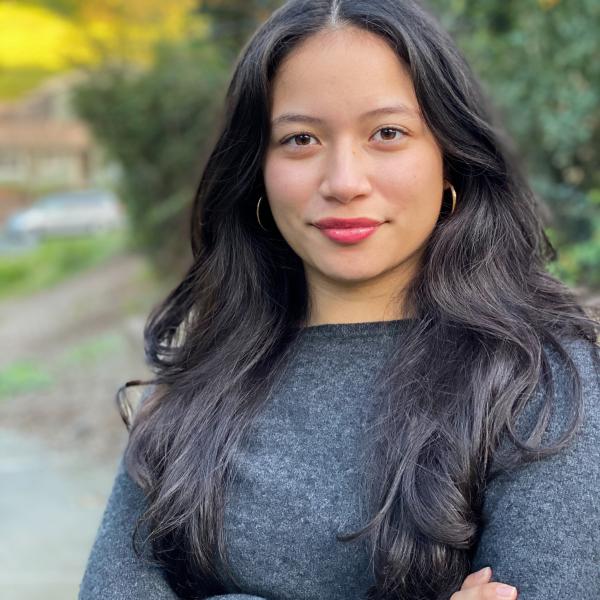
Sarah Del Carmen Camacho: Class of 2023
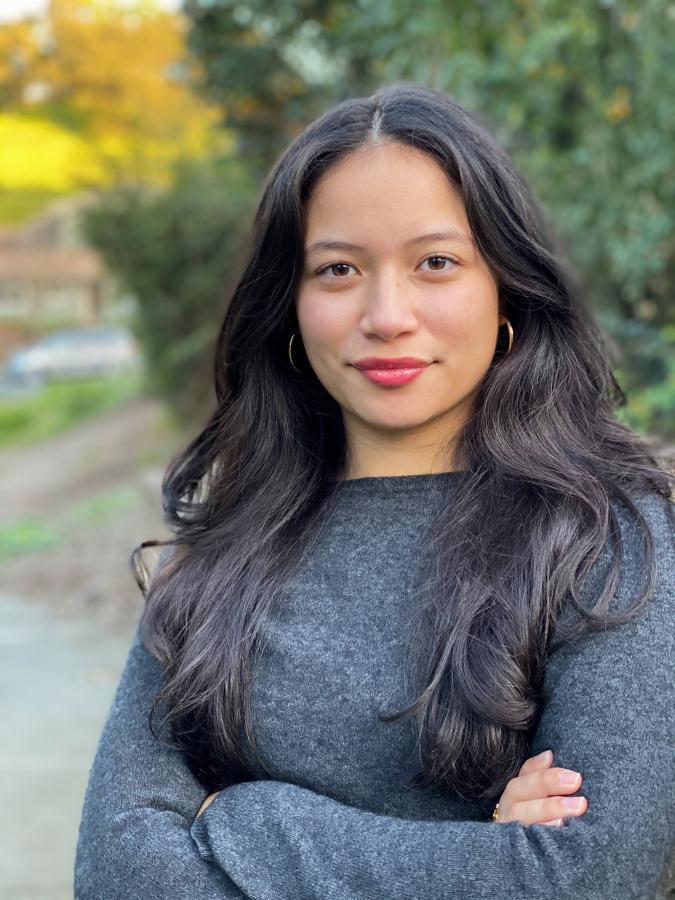
Majors: Global Studies, Educational Studies. Minor: Chinese Language
Project Title: "Tracing Steps from Borders to Classrooms: A Study of Immigration in the United States"
Project Description: My project is a multi-layered exploration of the how, when, and why of immigration to the United States. My study of international policy and seminal sociopolitical events will reveal the forces behind waves of immigration to the U.S. Ethnographic research will help me understand the convergence of immigrants into communities and the cultural understandings around educational attainment. Finally, I will use the classroom as a looking glass to examine the instruction and resources that immigrant children receive at school while analyzing the parent, teacher, and student dynamics. With all of these components, I intend to deliver a more complete narrative about the immigrant experience in the U.S. within a larger international context.
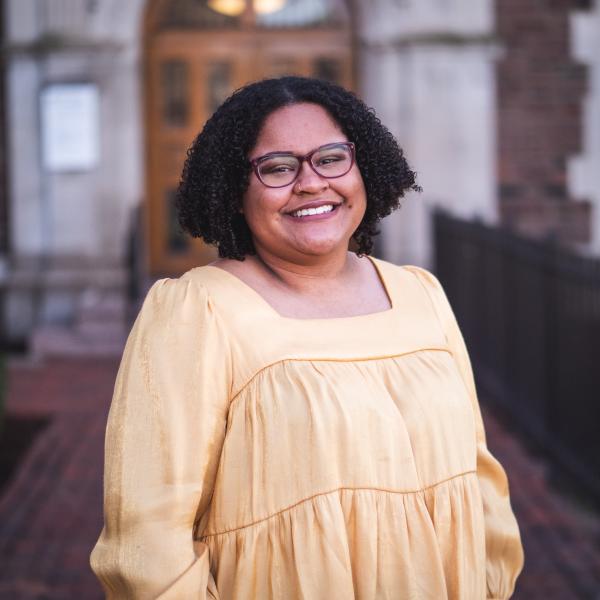
Savannah Henderson: Class of 2023
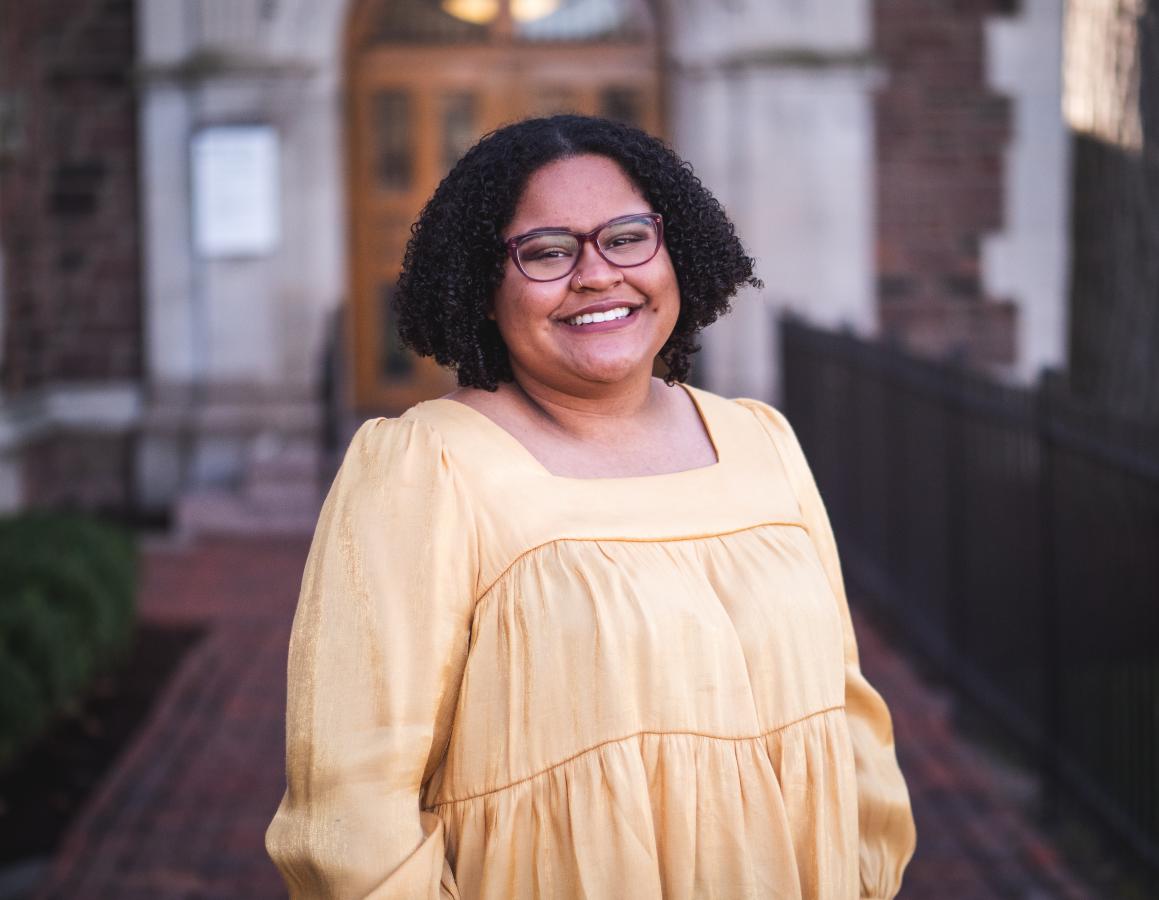
Major: Women, Gender, and Sexuality Studies; Sociology
Project Title: "At a Crossroads: How Black Women of Size Understand their Position at the Nexus of Racism, Sexism, and Sizeism"
Project Description: My project examines the intersections of racism, sexism, and sizeism for Black women of size in North County, St. Louis. In using a combination of historical and feminist analyses as well as an ethnographic approach, I will explore how Black women experience their personal and societal positionality at the intersections of the systemic oppression of race and gender in combination with societal sizeist expectations. I will explore how personal resource access influences their perceptions of their positionality, as well. The main goals of my project are to understand how resource access and media influence self-perception, how Black women in North County understand their positionality at the intersections of racism, sexism, and sizeism, and how it ultimately influences their self perception.
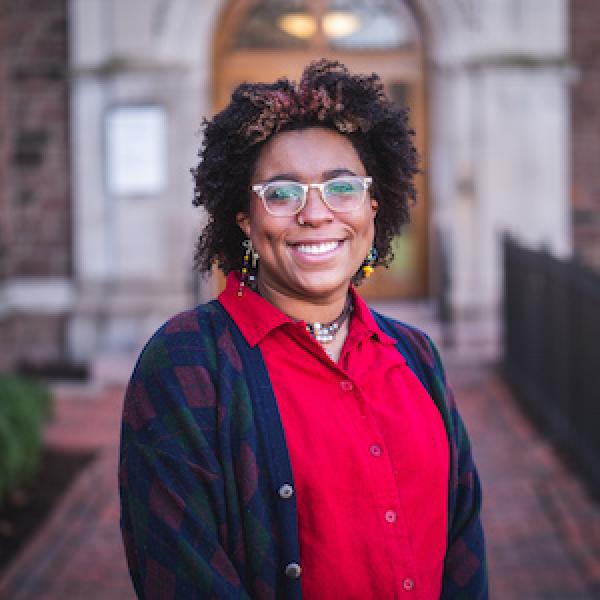
Olivia Kerr: Class of 2023
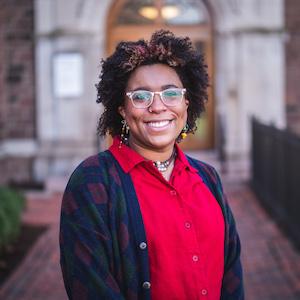
Major: African and African American Studies
Project Title: "Rethinking the 'Unusual Type': Queer Black Women & the Spatial Politics of Belonging in Twentieth Century Chicago"
Project Description: Historical examinations of queer people in American history have often overlooked and disregarded queer Black women. However, archival evidence gestures towards the existence of such women who led complex lives within a dominant society predicated on the othering of queer Black bodies. I intend to analyze archival materials surrounding the lives of queer Black women in early to mid-twentieth century Chicago. By recovering the conceptual and tangible spaces they occupied in the city, the project will illustrate the interiority of these queer Black women’s lives. Through spatial studies and a queer Black lens, Black women’s abstract and physical geographies illustrate how their queerness manifested spatiotemporally.
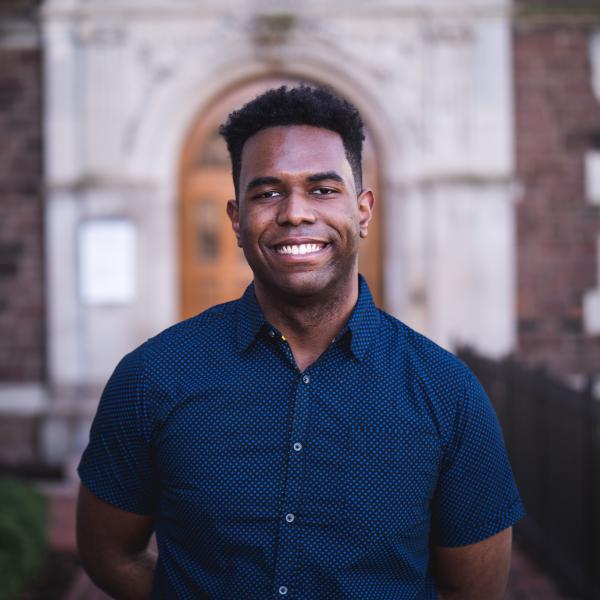
Marc Ridgell: Class of 2023
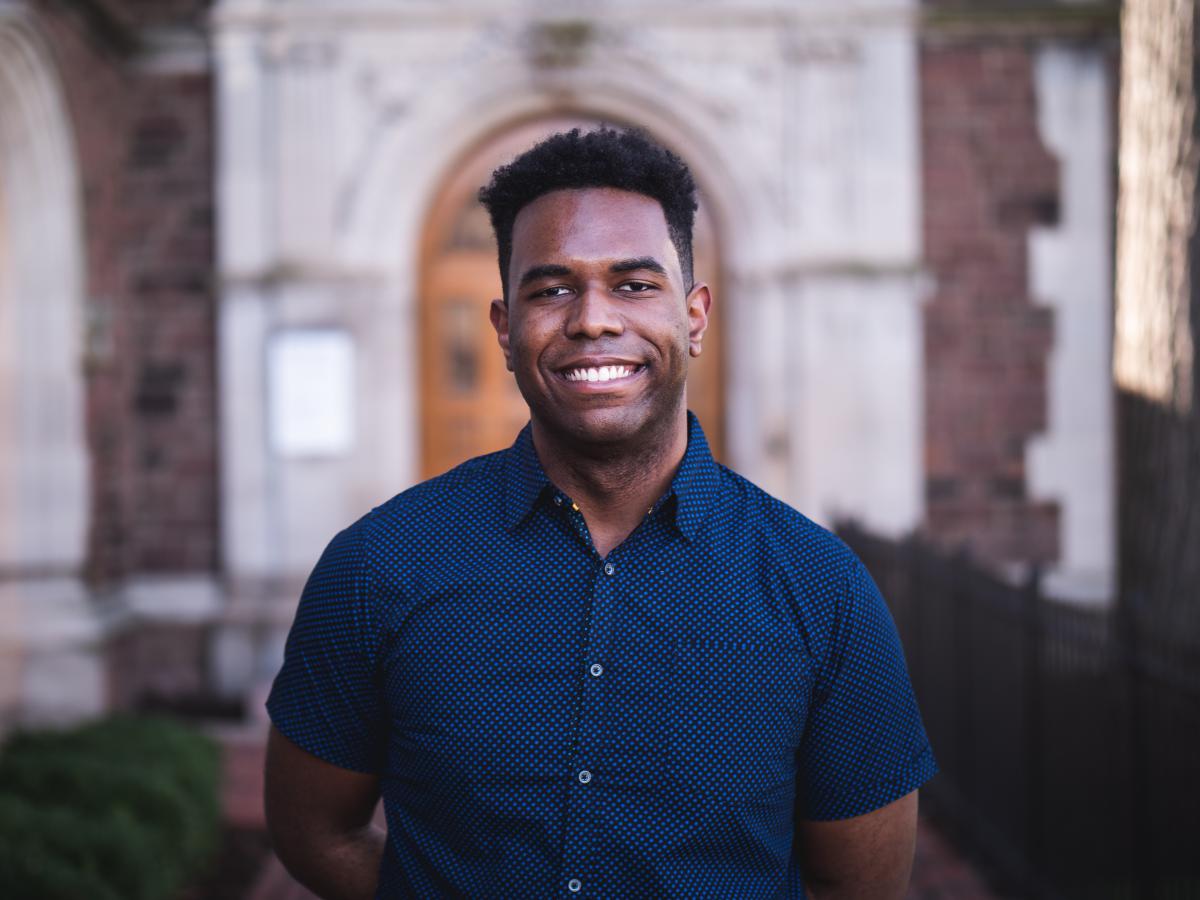
Majors: African and African American Studies; Women, Gender, and Sexuality Studies. Minor: Sociology
Project Title: "After 'Take Back Boystown': Centering the Lives of Black Queer Youth"
Project Description: The 2011 “Take Back Boystown” (TBB) movement surveilled queer youth of color who frequented Boystown, Chicago’s “gayborhood,” to access social services at community organizations and to freely perform non-normative gender and sexual practices. My proposed project will engage with the lives of today’s Black queer youth who frequent Boystown, mapping which neighborhoods they are from and learning why they visit. Firstly, I will utilize demographic and historical analyses to understand how Black queers have performed their identity both in redlined urban enclaves and in gayborhoods like Boystown. Secondly, I plan to employ methods in urban sociology, specifically ethnography and in-depth interviews, to center contemporary Black queer youth experiences, as recent articles show that anti-black surveillance still occurs in Boystown. Thus, ten years after TBB, within a pandemic, makes this an exigent project to examine the nexus between geographic space, vulnerable Black queer subjects, and access to public assistance.
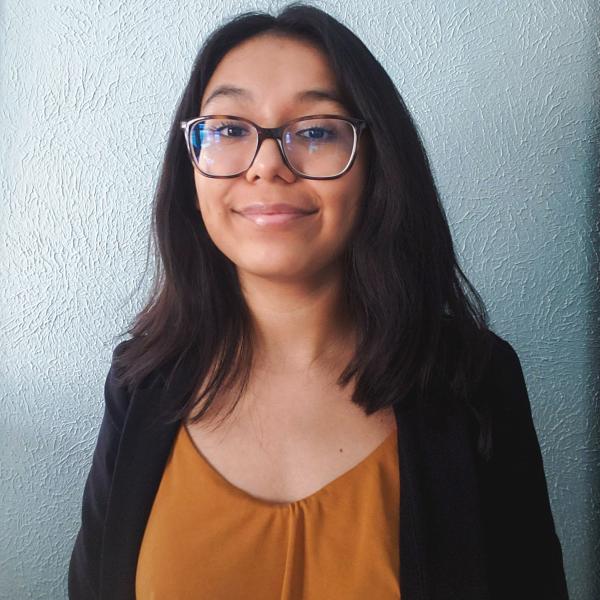
Ale Uriostegui: Class of 2023
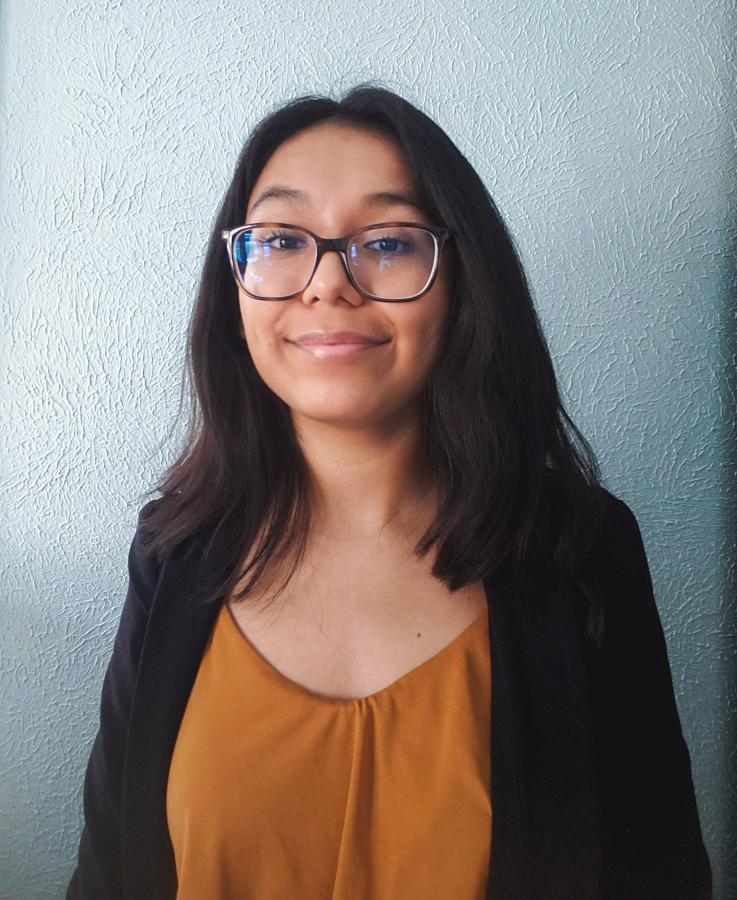
Majors: Latin American Studies, Spanish. Minor: Educational Studies
Project Title: “Approaching Historical Justice for the 1937 Parsley Massacre through Fictional Literary Novels”
Project Description: Also known as “El Corte,” the 1937 Parsley Massacre was an attack on Haitians under the ruling of former Dominican President Rafael Leonidas Trujillo, in which an estimated 20,000 Haitians were assassinated. I propose a comparative literary analysis of the massacre through four fictional novels: Jacques Stephen Alexis’s General Sun, My Brother (1955), René Philoctète’s Massacre River (1989), Edwidge Danticat’s The Farming of Bones (1998), and Freddy Prestoll Castillo’s You Can Cross the Massacre on Foot (2019). This project hopes to explore the tensions within and between personal stories in fictional literature as a larger demand for historical justice. I aim to analyze the temporal, social, and racial differences of the respective authors through their literary behaviors. While these nuances will be regarded, I strive to unearth the implications that subvert and supersede the imposed geographical limitations of Haiti and the Dominican Republic.
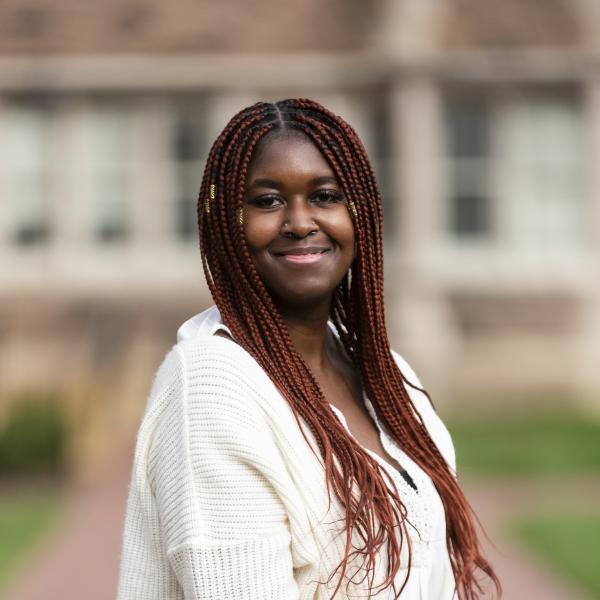
Ad'Mirel Durden: Class of 2024
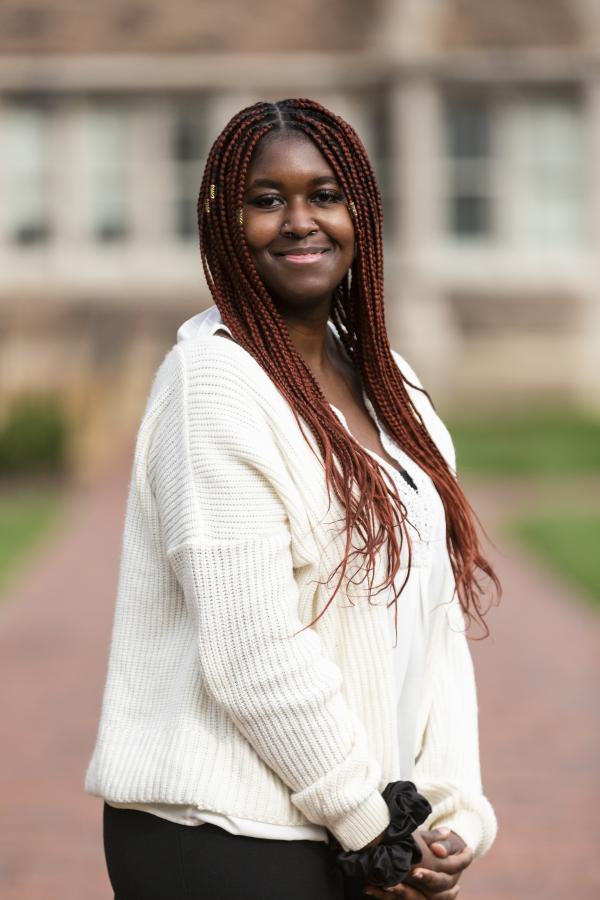
Major: Sociology Minors: Political Science and Legal Studies
Project Title: "Innocence to Hyper-Independence: Hyper-Independence's Impact on Black Women and Misgynoir-Impacted People's Interpersonal Relationships"
In the United States, innocence is the main tenant associated with childhood; however, due to the racialized construction of innocence, Black girls are excluded from childhood and subjected to adultification which can lead to the adoption of hyper-independence in their adult life.Despite its prevalence as a social phenomenon, hyper-independence and its impact on interpersonal relationships amongst Black women & misogynoir-impacted people is vastly unaccounted for. This project aims to define hyper-independence and understand how it shapes and informs the nature of Black women and misogynoir-impacted people’s platonic and familial relationships.
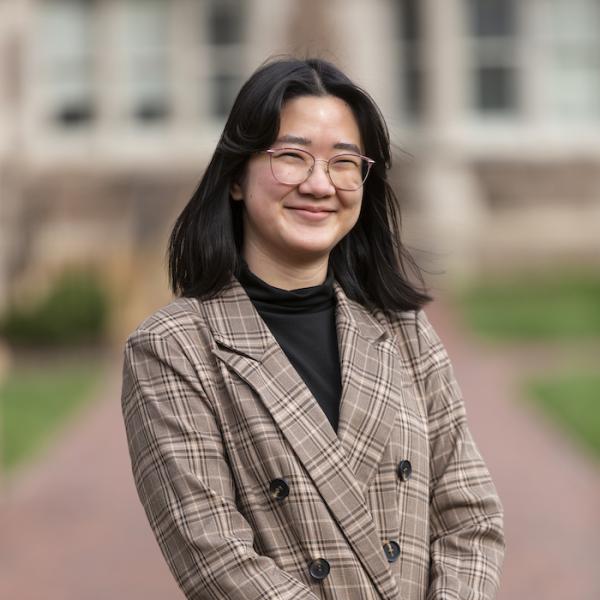
Annie Chang: Class of 2024
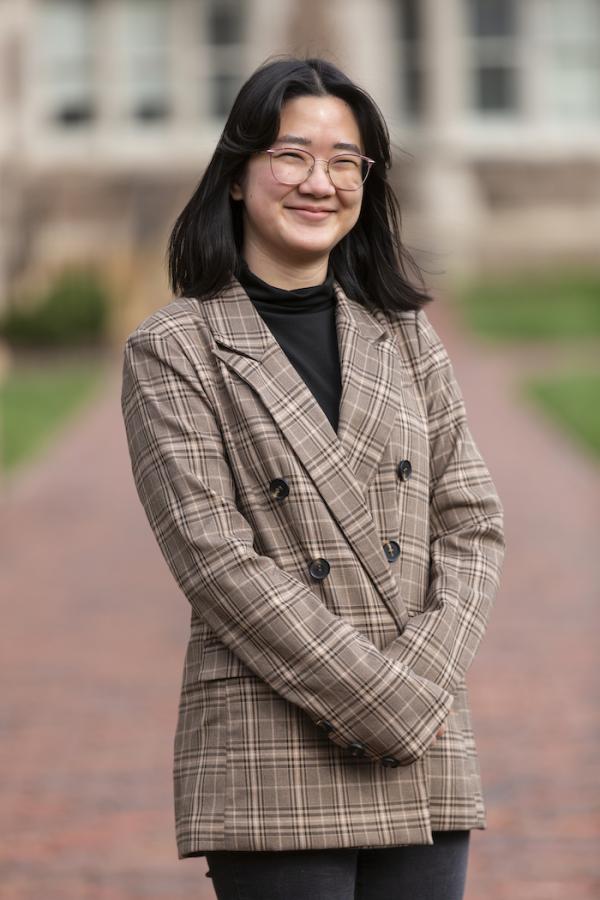
Major: Sociology
Project Title: “GIDRA is Truth: The Formation of Asian American Identity in Gidra”
During the Asian American movement, student activists coined the term “Asian American” as a rejection of the stereotypical Oriental and to formulate a political consciousness borne out of cross-racial solidarity. Scholarship on the Asian American movement has not emphasized its published media as a case of analysis, as it has mainly been included only in syntheses or commentaries about the movement. Therefore, this project analyzes the student-run political newspaper Gidra as a medium to articulate a political Asian American identity against the backdrop of 1970s Los Angeles.
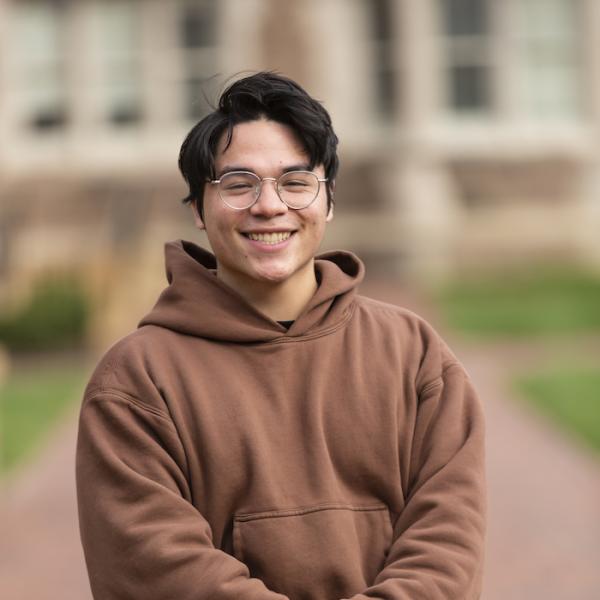
Lucas Veloria: Class of 2024
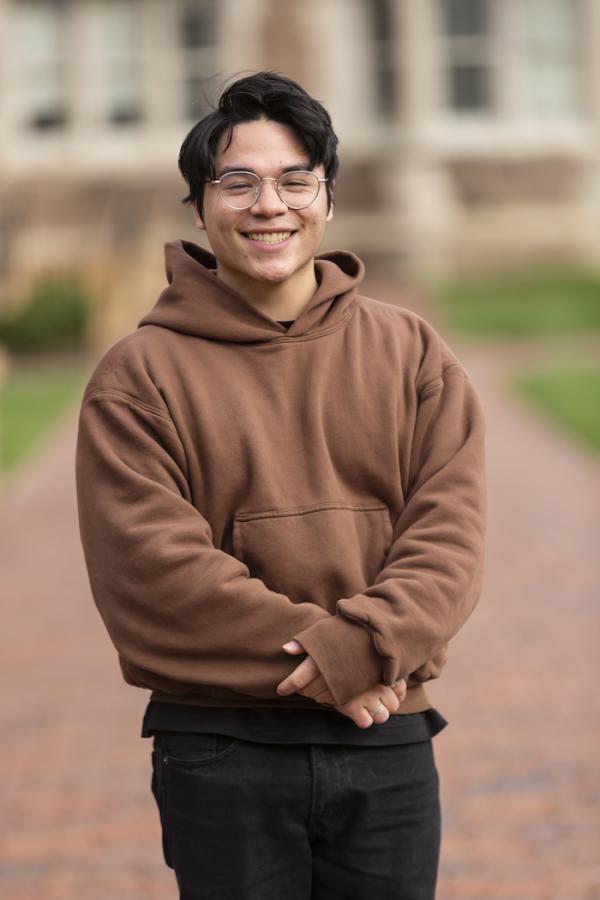
Majors: Political Science and Philosophy
Project Title: “Historical and Normative Analysis of the Pink Tide Movement of Latin America”
Does the rhetoric of Latin American populist leaders tend to align with the social and economic reality of the policies that they enact? How has the initial anti-capitalist, pro-indigenous and ecological rhetoric of the Morales regime in Bolivia (2006-2019) shifted in reaction to increased Bolivian reliance on natural gas and hydrocarbon extraction, meaning an increased fiscal dependency on resource extraction and ecologically destructive processes? As part of the larger political phenomenon known as the Pink Tide, Evo Morales was elected in part from the failure of neoliberal reforms in Bolivia and rose to power with a platform that emphasized departing from resource extraction and capitalist processes, as well as promoted indigenous cultural standards of living. However, while this may have been the initial platform and rhetoric of the Morales regime, the political track record of the Morales regime does not reflect this in reality: while many of the profits from resource extraction have been used to financially support social programs, Bolivia still depends on capitalist modes of production to sustain continued economic growth. With this background in mind, tracing the rhetoric of the Morales regime against the actual policies enacted provides insight into the difficulties of departing from capitalist modes of production and the persistence (or lack thereof) of certain rhetorical and discursive tactics that characterize the Morales government's relationship with capitalism and hydrocarbon extraction.
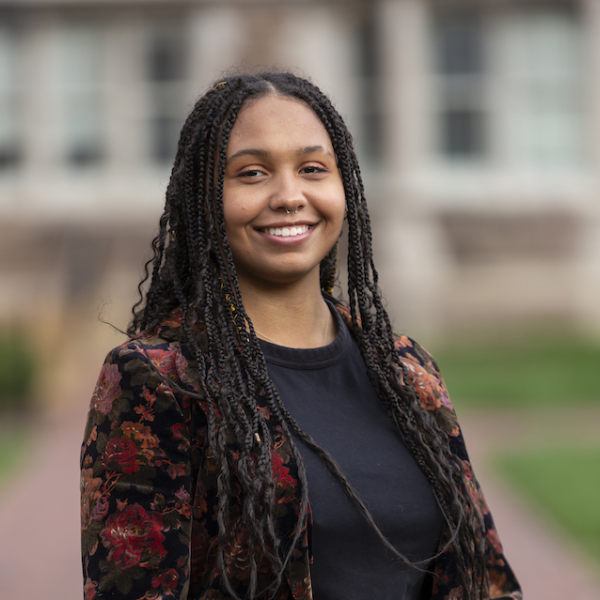
Tori Harwell: Class of 2024
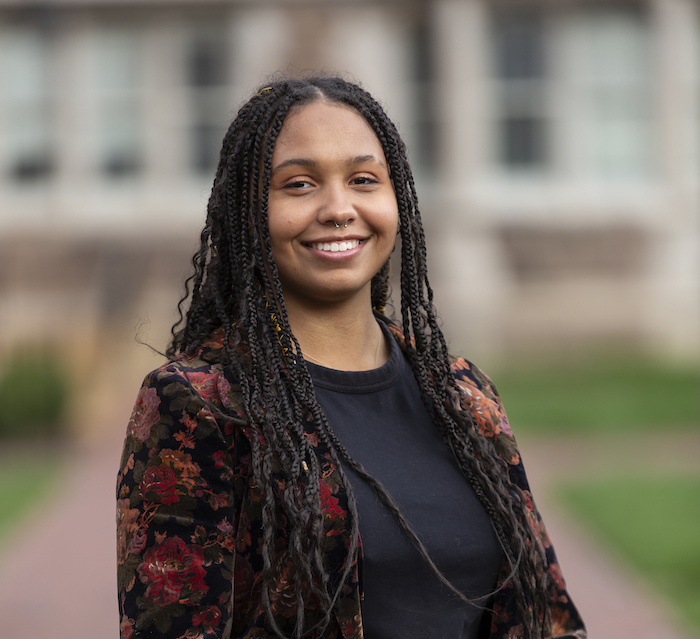
Majors: African and African-American Studies and Women, Gender and Sexuality Studies Minor: Environmental Analysis
Project Title: “Black Eco-feminism"
Black eco-feminism is an interdisciplinary research project that explores the responses of Black people to environmental injustice and the knowledge created through their forms of resistance. Environmental injustices, such as illegal logging of hardwoods, illegal gold mining, food swamps, and the influx of white settlers, are experienced differently based on race, sexuality, and gender. Thus, the response to those injustices by Black people is unique and essential to creating more just societies for all in the future. Furthermore, the centering of indigenous African epistemologies around the environment is quintessential to solving climate change on a global scale. This project will help create a framework to link seemingly disparate connected geographical locations and bridge their responses to environmental injustices under the umbrella of indigenous African beliefs systems.
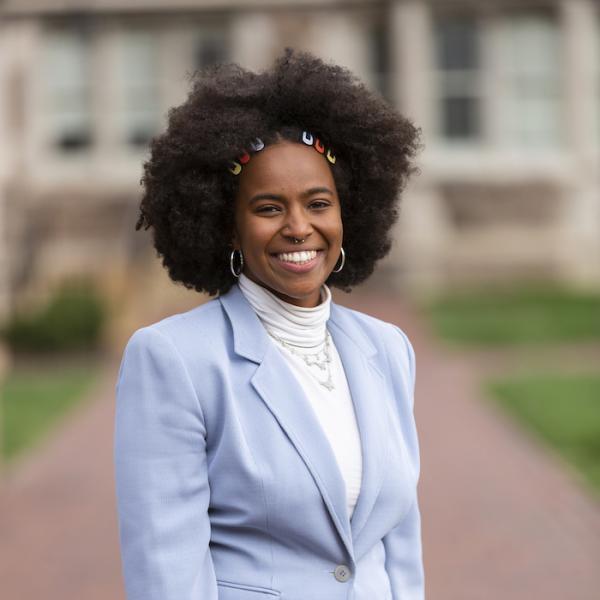
Maya Phelps: Class of 2024
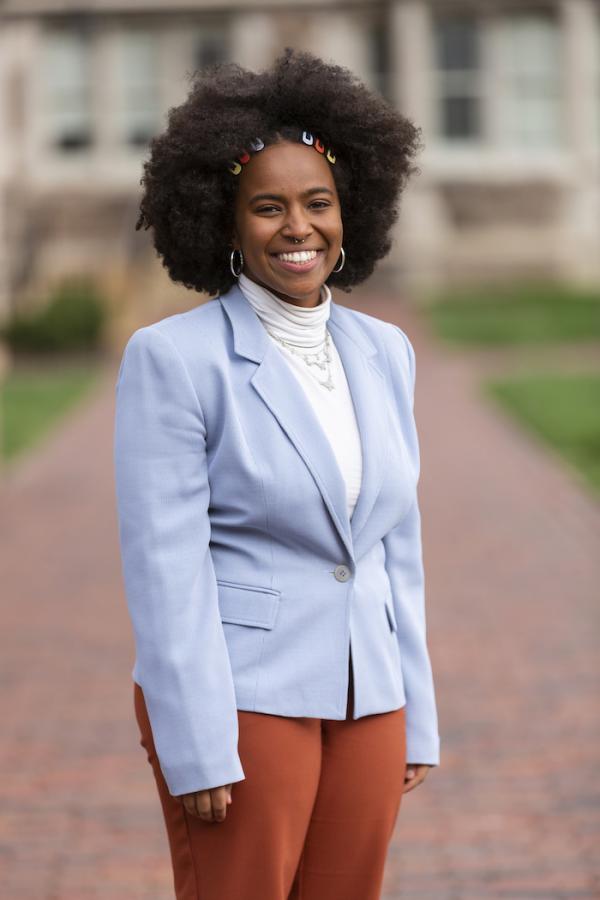
Major: African and African-American Studies Minor: Sociology
Project Title: “Carceral Definitions: How Definitions of Permanency and Neglect Result in Systemic Violence for Black Children”
MaKhia Bryant, a Black foster care girl, called the police for help because she was being threatened, and in turn, police murdered her because of their own biased discretion and carceral logics. The reliance on personal instinct and punitive action reveals one reason why MaKhia’s death happened: the intersection of foster care and policing. This project will explore both the carceral, punitive history of Child Protective Services and their implications on the lives of Black youth in the foster care system. The first component will contextualize 20th and 21st century legislative decisions in perpetuating racialized standards of child neglect and permanency that disproportionately impact low-income Black families and will interrogate the historical connections between these institutions, drawing on archives and legislation to do so. In the second component, the project employs methods of Black Feminist Ethnography and in-depth interviews to center authentically the voices and lived experiences of young adults who have lived through foster care. The project centers, supports, and protects the humanity of foster care youth while understanding and contextualizing the vulnerabilities they experience.
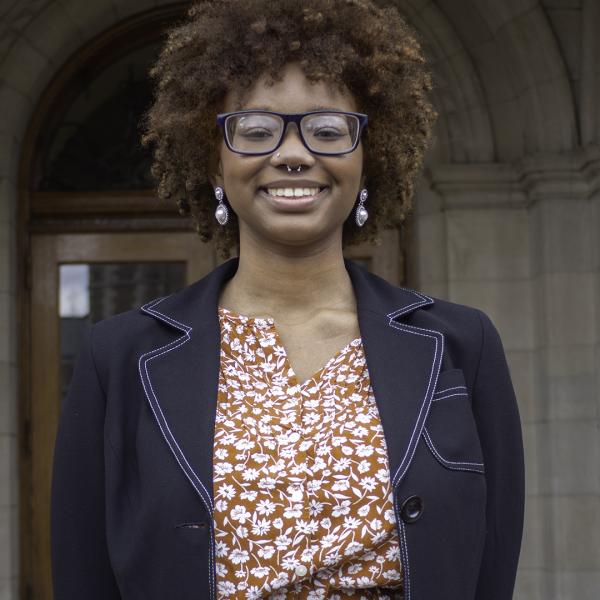
Leandrea Clay: Class of 2025
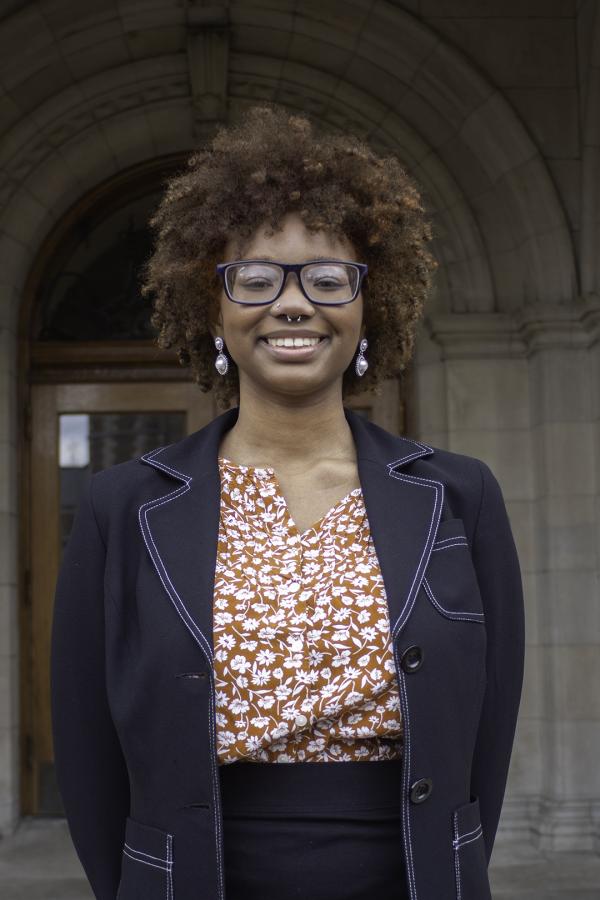
Major: African and African American Studies and Anthropology
Project Title: “Black Sonicism: Cultural Maintenance and Evolution through N.O. Bounce Music”
As a form of regional hip-hop, bounce music operates an expressive culture native to New Orleans and has since developed through generations of bounce artists. The genre has been sampled by prominent artists such as Beyoncé and spread to an international fanbase. However, the genre—and its community of live musicians—continually face a range of issues from local noise ordinances to appropriation within the music industry. Through participant observation, archival research, lyrical analysis, and digital ethnography, I observe that bounce artists utilize different audience formations and modes of relation to preserve their expressive culture. This project focuses on how the genre provides an avenue to analyze how regional sound reflects intercommunal dynamics through the development of the Black sonicism framework. This project’s goal is to provide a framework to analyze Black expressive culture and further support their maintenance.
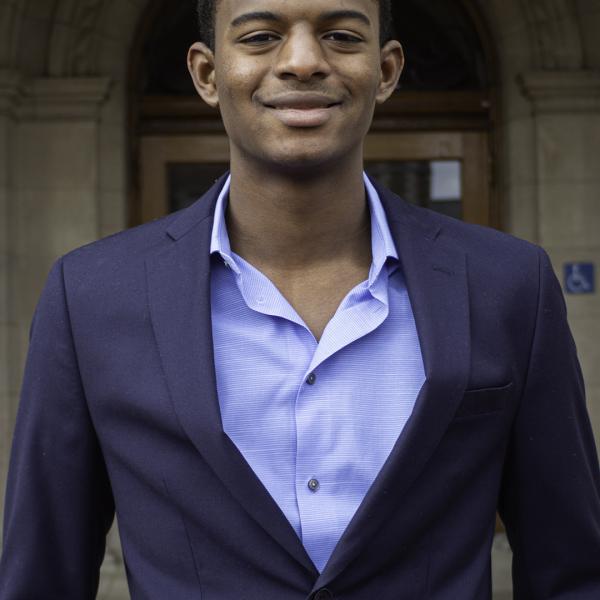
Zach Gore: Class of 2025
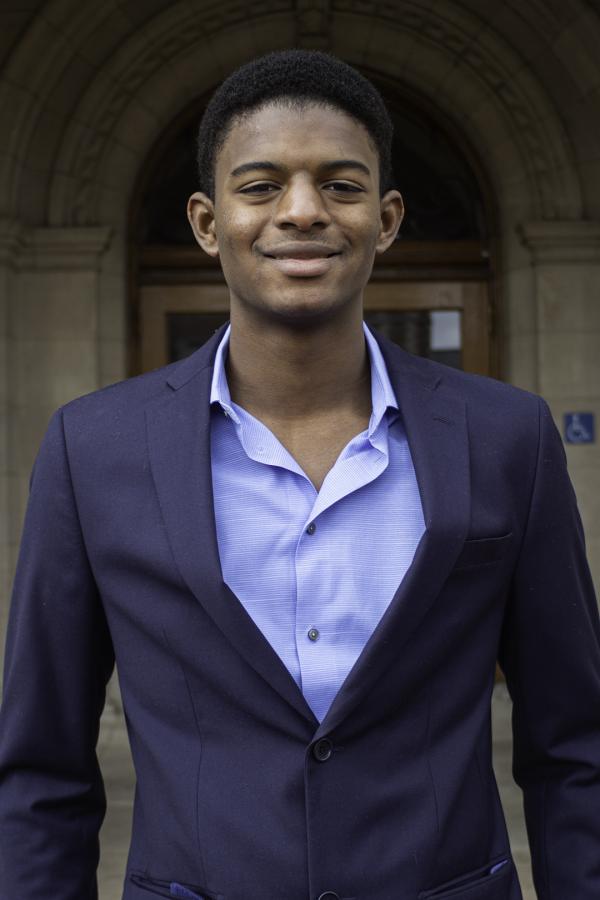
Major: History and Spanish
Project Title: “Japan's History With its Natural Environment Through Film”
This project will explore how depictions of nature in Japanese film have evolved over time. Since current events are often the inspiration for films, it will also examine the major events in Japanese history corresponding with the release of certain films. While film will be the primary lens through which to examine history, the project will also look at the filmmakers themselves to analyze what their portrayals of the environment say about cultural shifts in Japan. At its core, this project is meant to portray the tension that exists between humanity and the natural world.
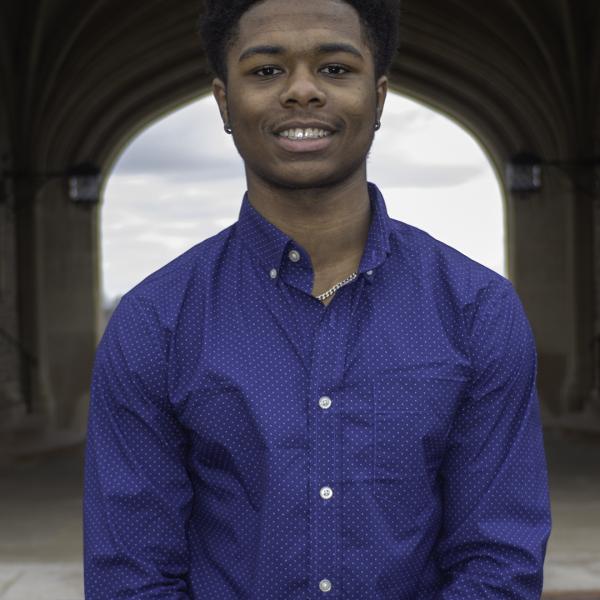
Jermicah Lott: Class of 2025
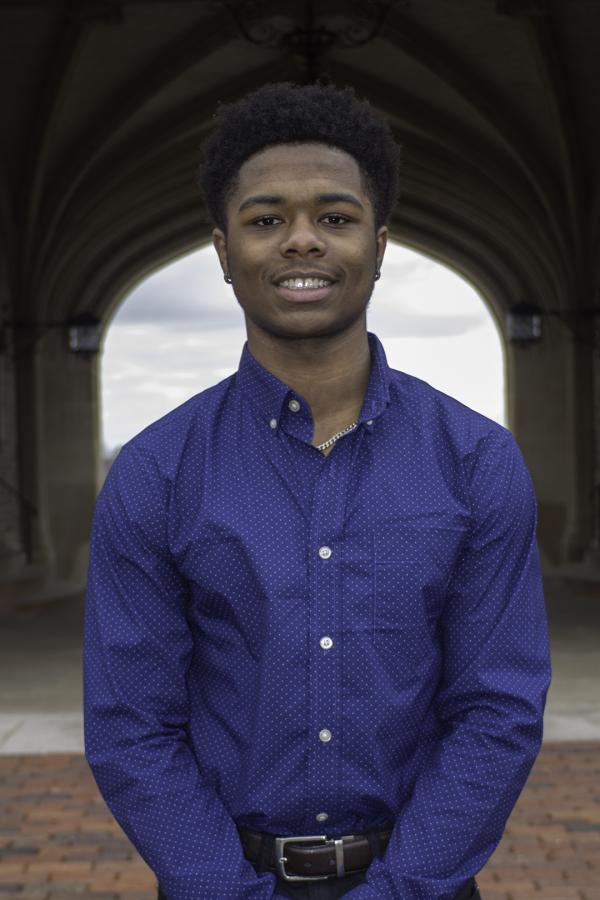
Major: African and African American Studies
Project Title: “Subsistence to Destitution: The Proletarianization of Black Working Classes”
Proletarianization involves individuals who are displaced from their means of production and coerced to sell their labor for wages. People within the African Diaspora have repeatedly undergone this process without reparations. The project entails analyzing socioeconomic congruences between Black working classes in the African diaspora, including proletarianized Jim Crow rural workers in Mississippi and proletarianized Kenyans during the colonial period. Because of its importance for self-sufficiency, land will be the foremost metric of comparison. The project will undertake socio-historical analysis via archival documents, oral tradition and oral history.
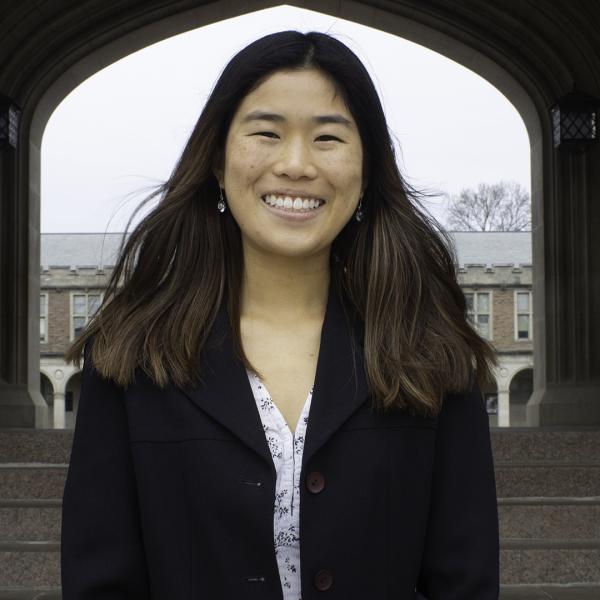
Amanda Young: Class of 2025
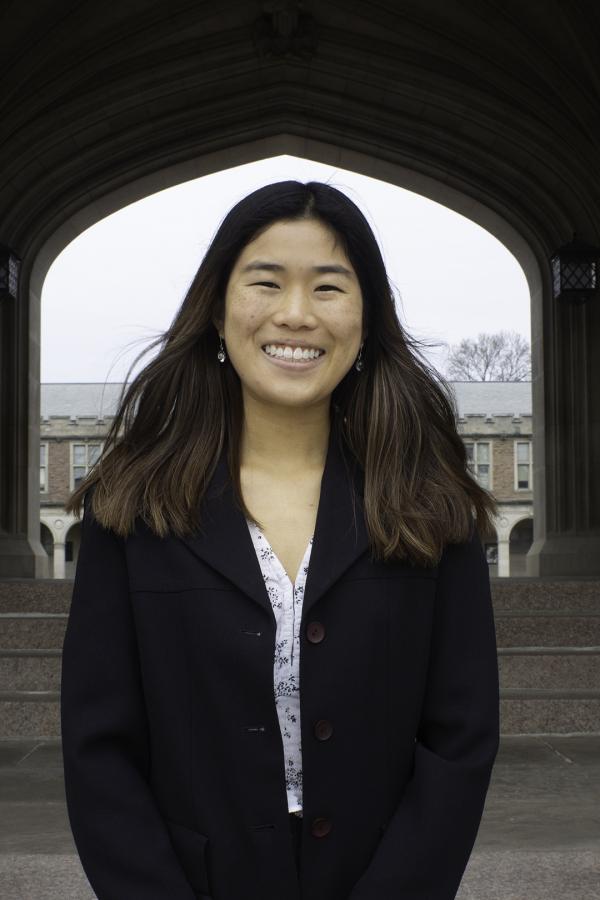
Major: History and Educational Studies Minor: American Culture Studies
Project Title: “Chinese Students, Jim Crow Schools: Navigating Education in a Black-and-White Society”
Most people associate the Jim Crow South with white supremacy and racism, rooted in legacies of enslavement, which culminated in the strict segregation of Black and white people. However, another group — the Chinese — fit in neither category. As a racial anomaly in the segregated South, the Chinese occupied an intermediate position, which is particularly discernible in education. The project will explore how Chinese families from approximately 1896 to 1954 complicated the bifurcated system of segregation by resisting, acquiescing, and/or internalizing the racial hierarchy to obtain access to schools. This work will highlight how the Chinese fought for educational opportunities and grappled with their racial identities while navigating white, Black, and Chinese institutions.
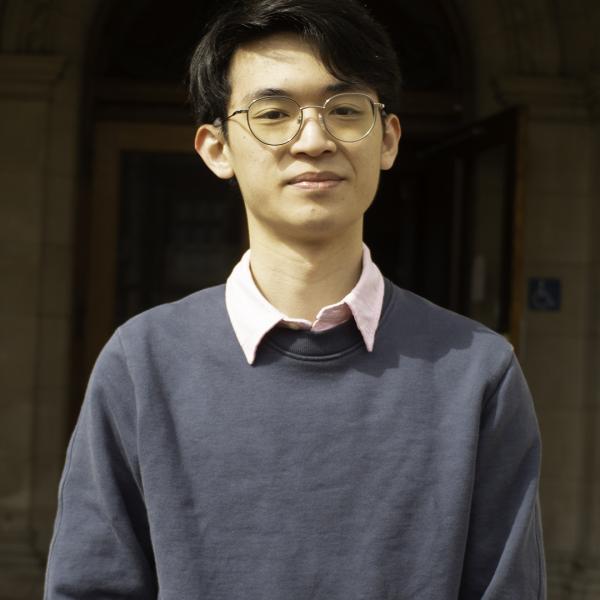
Han Zhang: Class of 2025
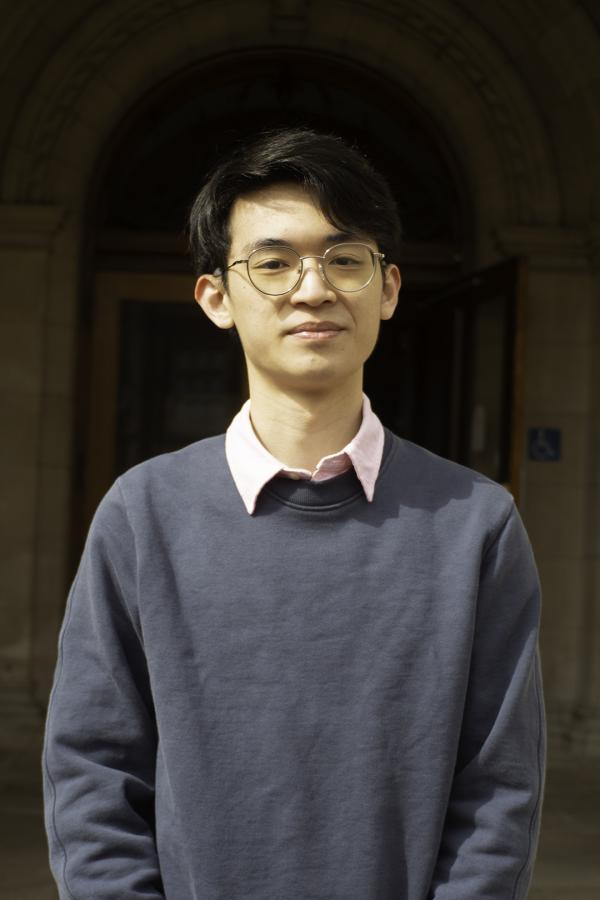
Major: Global Studies
Project Title: “Live(s) Streaming: Twitch.tv and the Creation of Digital Safe Space”
With the advent of the Internet and the age of COVID-19, the way that people interact has changed dramatically over the past decade. People are increasingly drawn to Twitch.tv, an online streaming platform where entertainers (who often live-stream themselves playing games, cooking, singing, or even just chatting) interact with audiences of hundreds or even thousands of people. Twitch is most famous for its communities centered around gaming, and has garnered a reputation for internalized racism, homophobia, and misogyny, among other things. This project aims to explore the nature of LGBT or LGBT-supporting communities within the broader Twitch community and analyze how marginalized groups not only survive but thrive in hostile digital environments.
